What To Know About Medicinal Herbal Syrups

Some of the best medicinal herbal syrups include echinacea, which is widely used to boost the immune system and reduce the duration of colds.
Licorice root syrup is known for its soothing effects on sore throats and its ability to support respiratory health. Goldenseal syrup is often used for its antimicrobial properties and as a natural remedy for digestive issues. Marshmallow root syrup is valued for its ability to coat and protect the throat, making it effective for coughs and inflammation.
These syrups are popular for their natural ingredients and traditional use in herbal medicine, offering gentle yet effective therapeutic benefits.
FREE Herb Drying Checklist
How to make sure every batch retains maximum flavor, color, and aroma without the risk of mold or over-drying. Eliminate guesswork and trial-and-error, making herb drying faster, easier, and more efficient every time.
Table of Contents
- 1. Ginger (Zingiber officinale)
- 2. Stinging nettle (Urtica dioica)
- 3. Salvia (Salvia officinalis)
- 4. St. john's wort (Hypericum perforatum)
- 5. Chaste tree (Vitex agnus-castus)
- 6. Echinacea (Echinacea purpurea)
- 7. Licorice (Glycyrrhiza glabra)
- 8. Thistle (Silybum marianum)
- 9. Turmeric (Curcuma longa)
- 10. Peppermint (Mentha piperita)
- 11. Dog rose (Rosa canina)
- 12. Fennel (Foeniculum vulgare)
- 13. Yarrow (Achillea millefolium)
- 14. Rosemary (Rosmarinus officinalis)
- 15. Blessed thistle (Cnicus benedictus)
- 16. Black pepper (Piper nigrum)
- 17. Ceylon cinnamon (Cinnamomum verum)
- 18. Chamomile (Matricaria chamomilla)
- 19. Field horsetail (Equisetum arvense)
- 20. Aloe barbadensis
- 21. English lavender (Lavandula angustifolia)
- 22. Thyme (Thymus vulgaris)
- 23. Cumin (Cuminum cyminum)
- 24. Eucalyptus (Eucalyptus globulus)
- 25. German chamomile (Chamomilla recutita)
- 26. Marigold (Calendula officinalis)
- 27. Ginkgo (Ginkgo biloba)
- 28. Common grape (Vitis vinifera)
- 29. Black elderberry (Sambucus nigra)
- 30. Valerian (Valeriana officinalis)
- 31. Camellia (Camellia sinensis)
- 32. Panax ginseng (Panax ginseng)
- 33. Black cohosh (Cimicifuga racemosa)
- 34. Mountain arnica (Arnica montana)
- 35. Lemon balm (Melissa officinalis)
- 36. White water lily (Nymphaea alba)
- 37. Ceylon cinnamon (Cinnamomum zeylanicum)
- 38. Black cumin (Nigella sativa)
- 39. Common mallow (Symphytum officinale)
- 40. Sanguisorba (Sanguisorba officinalis)
- 41. Oregano (Origanum vulgare)
- 42. Maypop (Passiflora incarnata)
- 43. Centella (Centella asiatica)
- 44. Golden root (Rhodiola rosea)
- 45. Heartworts (Leonurus cardiaca)
- 46. Scots pine (Pinus sylvestris)
- 47. Parsley (Petroselinum crispum)
- 48. Buckwheat (Plantago ovata)
- 49. Anise (Pimpinella anisum)
- 50. Ashwagandha (Withania somnifera)
- 51. Kava (Piper methysticum)
- 52. Garlic (Allium sativum)
- 53. Puncture vine (Tribulus terrestris)
- 54. St. john's wort (Agrimonia eupatoria)
- 55. European plum (Prunus domestica)
- 56. Bacopa (Bacopa monnieri)
- 57. Melaleuca (Melaleuca alternifolia)
- 58. Bloodroot (Sanguinaria canadensis)
- 59. Sutherlandia frutescens
- 60. Wormwood (Artemisia vulgaris)
- 61. Plantain (Plantago lanceolata)
- 62. Catnip (Nepeta cataria)
- 63. Sweet wormwood (Artemisia annua)
- 64. False leaf (Phyllanthus amarus)
- 65. Indian frankincense (Boswellia serrata)
- 66. Polium germander (Teucrium polium)
- 67. Common plantain (Plantago major)
- 68. Poison ivy (Rhus toxicodendron)
- 69. Common hawthorn (Crataegus oxyacantha)
- 70. Velvet bean (Mucuna pruriens)
- 71. Maca (Lepidium meyenii)
- 72. Barrenwort (Epimedium grandiflorum)
- 73. Tongkat ali (Eurycoma longifolia)
- 74. Caraway (Carum carvi)
- 75. Marshmallow (Althaea officinalis)
- 76. Tree peony (Paeonia suffruticosa)
- 77. Sacred lotus (Nelumbo nucifera)
- 78. Goatweed (Eclipta prostrata)
- 79. Lemon grass (Cymbopogon citratus)
- 80. Wormwood (Artemisia absinthium)
- 81. Dandelion (Taraxacum officinale)
- 82. Geranium (Pelargonium graveolens)
- 83. Nux vomica (Strychnos nux-vomica)
- 84. Pygeum (Pygeum africanum)
- 85. Horse radish (Cnidium monnieri)
- 86. Chinese peony (Paeonia lactiflora)
- 87. White cedar (Thuja occidentalis)
- 88. Euphrasia (Euphrasia officinalis)
- 89. Greek oregano (Satureja hortensis)
- 90. Hops (Humulus lupulus)
- 91. Peperomia plant (Peperomia pellucida)
- 92. Love-in-a-mist (Peucedanum ostruthium)
- 93. Dill (Anethum graveolens)
- 94. Indian barberry (Berberis aristata)
- 95. Red sage (Salvia miltiorrhiza)
- 96. Yellow milkvetch (Astragalus membranaceus)
- 97. Devil's ivy (Cissus quadrangularis)
- 98. Black cohosh (Actaea racemosa)
- 99. Black henbane (Hyoscyamus niger)
- 100. Indian gooseberry (Emblica officinalis)
1. Ginger (Zingiber officinale)

Zingiber officinale herbal syrups are used to support digestive health by stimulating the production of digestive enzymes and reducing bloating and indigestion.
They are also commonly utilized to alleviate nausea and motion sickness due to their soothing properties on the stomach. These syrups can help relieve respiratory symptoms such as coughs and sore throats by acting as a natural expectorant. Additionally, they are known to have anti-inflammatory and antioxidant properties that contribute to overall wellness.
Because of their versatility and mild, pleasant taste, zingiber officinale herbal syrups are a popular choice for both preventive and therapeutic purposes in traditional and modern herbal medicine.
2. Stinging nettle (Urtica dioica)

Urtica dioica herbal syrups are used to support digestive health by promoting the production of digestive enzymes and reducing bloating.
They are also valued for their ability to alleviate symptoms of respiratory conditions such as coughs and bronchitis due to their expectorant properties. These syrups can help detoxify the body by supporting liver function and aiding in the removal of toxins. Additionally, they are used to manage skin irritations and allergic reactions because of their anti-inflammatory and antihistamine effects.
Overall, urtica dioica herbal syrups are a versatile natural remedy with a range of health benefits that make them popular in traditional and modern herbal medicine.
3. Salvia (Salvia officinalis)

Salvia officinalis herbal syrups are used to support respiratory health by soothing coughs and reducing inflammation in the airways.
They are often recommended for their expectorant properties, which help to loosen mucus and make it easier to expel. Additionally, these syrups may aid in relieving symptoms of sore throats and minor irritations due to their antimicrobial and anti-inflammatory effects. The presence of compounds like rosmarinic acid and flavonoids contributes to their therapeutic benefits.
Because of their natural composition and mild effects, salvia officinalis syrups are a popular choice for those seeking alternative remedies for common cold and flu symptoms.
4. St. john's wort (Hypericum perforatum)

Hypericum perforatum herbal syrups are used to support mental health and alleviate symptoms of mild depression and anxiety.
They are believed to enhance mood by increasing serotonin levels in the brain, similar to the effects of certain antidepressants. These syrups are also commonly used to reduce symptoms of seasonal affective disorder, particularly during the darker winter months. Their calming properties make them a popular choice for stress relief and promoting overall emotional well-being.
Due to their natural composition and mild side effects, hypericum perforatum syrups are often preferred as a complementary therapy in holistic health approaches.
5. Chaste tree (Vitex agnus-castus)

Vitex agnus-castus herbal syrups are used to support hormonal balance, particularly in women, by regulating menstrual cycles and alleviating symptoms of premenstrual syndrome (PMS).
They are often recommended for conditions such as irregular periods, infertility, and mood swings associated with hormonal fluctuations. The herb is believed to influence the pituitary gland, which in turn affects the production of reproductive hormones like prolactin and luteinizing hormone. Additionally, these syrups may help reduce breast tenderness and improve overall emotional well-being during the menstrual cycle.
Due to their natural composition and mild side effect profile, they are a popular choice for those seeking alternative or complementary therapies for hormonal health.
6. Echinacea (Echinacea purpurea)

Echinacea purpurea herbal syrups are used to support the immune system and reduce the duration of cold symptoms.
They are commonly taken during the early stages of a cold to help alleviate symptoms such as sore throat, cough, and congestion. The active compounds in echinacea, such as polysaccharides and flavonoids, are believed to enhance immune function by stimulating white blood cell activity. Due to their natural and generally mild side effect profile, these syrups are popular among children and adults seeking alternative remedies.
However, it is important to consult a healthcare provider before use, especially for individuals with allergies or chronic health conditions.
7. Licorice (Glycyrrhiza glabra)

Glycyrrhiza glabra herbal syrups are used to support respiratory health by soothing irritated throats and reducing coughing due to their expectorant and anti-inflammatory properties.
They are also commonly used to alleviate symptoms of colds and bronchitis by helping to loosen mucus and ease breathing. The syrup's natural sweetness comes from glycyrrhizin, which not only enhances flavor but also has mild antiviral effects. Additionally, glycyrrhiza glabra syrups may help in managing stress and improving adrenal function, making them beneficial for individuals with hormonal imbalances.
Overall, these syrups are valued for their versatility in addressing a range of mild to moderate health concerns through their calming and healing properties.
8. Thistle (Silybum marianum)

Silybum marianum herbal syrups are used to support liver health and detoxification due to their active compound, silymarin, which has antioxidant and anti-inflammatory properties.
These syrups are commonly recommended for individuals exposed to environmental toxins, alcohol, or medications that may strain the liver. They may also aid in the treatment of liver conditions such as hepatitis and cirrhosis by promoting the regeneration of liver cells. Additionally, silybum marianum syrups are believed to enhance overall metabolic function and may help reduce oxidative stress in the body.
Their mild taste and ease of consumption make them a popular choice for long-term use in maintaining liver wellness.
9. Turmeric (Curcuma longa)

Curcuma longa herbal syrups are used to support digestive health and reduce inflammation in the body.
They contain curcumin, a powerful antioxidant and anti-inflammatory compound known for its numerous health benefits. These syrups are commonly used to alleviate symptoms of digestive disorders such as indigestion, bloating, and irritable bowel syndrome. Additionally, they may help in managing joint pain and arthritis due to their anti-inflammatory properties.
The natural and gentle formulation makes curcuma longa syrups a popular choice for those seeking holistic and alternative health solutions.
10. Peppermint (Mentha piperita)

Mentha piperita herbal syrups are used to alleviate symptoms of digestive discomfort such as bloating, gas, and indigestion due to their calming effect on the gastrointestinal tract.
These syrups are also commonly used to soothe sore throats and reduce coughing by leveraging the anti-inflammatory and antimicrobial properties of peppermint. Their refreshing taste makes them a popular choice for children and adults alike, especially when taken as a natural remedy for mild respiratory issues. Additionally, mentha piperita syrups can help relieve headaches and migraines by promoting relaxation and improving blood circulation.
Overall, their versatility and gentle nature make them a valuable addition to both traditional and modern herbal medicine practices.
11. Dog rose (Rosa canina)

Rosa canina herbal syrups are used to support immune function and promote overall wellness by providing a concentrated source of vitamin C and antioxidants.
These syrups are particularly beneficial for individuals experiencing colds, flu, or respiratory infections due to their immune-boosting properties. They are also commonly used to alleviate symptoms of fatigue and enhance energy levels, making them a popular choice during periods of stress or illness. The natural ingredients in rosa canina contribute to reducing inflammation and supporting the body's natural healing processes.
Due to their pleasant taste and ease of consumption, these syrups are suitable for both adults and children, offering a convenient way to incorporate herbal health benefits into daily routines.
12. Fennel (Foeniculum vulgare)

Foeniculum vulgare herbal syrups are used to support digestive health by stimulating the production of digestive enzymes and promoting the secretion of bile, which aids in the breakdown of fats.
These syrups are also valued for their ability to relieve symptoms of indigestion, bloating, and gas, making them a popular remedy in natural medicine. The licorice-like flavor of foeniculum vulgare makes the syrup palatable, encouraging regular use for long-term benefits. Additionally, the syrup is often used to soothe respiratory issues such as coughs and sore throats due to its expectorant properties.
Overall, foeniculum vulgare herbal syrups are a versatile and effective herbal remedy with multiple therapeutic applications.
13. Yarrow (Achillea millefolium)

Achillea millefolium herbal syrups are used to support respiratory health by helping to alleviate symptoms of coughs, bronchitis, and other respiratory conditions due to their expectorant properties.
These syrups are also valued for their anti-inflammatory and antimicrobial effects, which can help reduce inflammation in the airways and combat infections. Additionally, they are commonly used to soothe sore throats and ease discomfort associated with colds and flu. The soothing and calming effects of achillea millefolium may also contribute to overall well-being, making it a popular choice in traditional and modern herbal medicine.
Because of these benefits, achillea millefolium herbal syrups are often recommended as a natural alternative for managing mild to moderate respiratory ailments.
14. Rosemary (Rosmarinus officinalis)

Rosmarinus officinalis herbal syrups are used to support respiratory health by helping to alleviate symptoms of coughs and sore throats due to their expectorant and anti-inflammatory properties.
These syrups are also beneficial for improving digestion, as rosemary contains compounds that stimulate the production of digestive enzymes and promote healthy gut function. Additionally, they are often used to enhance mental clarity and reduce fatigue, thanks to their calming and stimulating effects on the nervous system. The aromatic compounds in rosemary syrups can also help relieve stress and improve mood, making them a popular choice in aromatherapy and holistic medicine.
Overall, the versatility of rosmarinus officinalis herbal syrups makes them a valuable natural remedy for a range of health concerns.
15. Blessed thistle (Cnicus benedictus)

Cnicus benedictus herbal syrups are used to support respiratory health by alleviating symptoms of coughs and bronchitis due to their expectorant and anti-inflammatory properties.
These syrups are also beneficial for digestive issues, as they can help soothe irritated throats and ease discomfort associated with indigestion. The plant's natural compounds contribute to its ability to reduce inflammation and promote healing in the respiratory and digestive tracts. They are often recommended for their mild, soothing effects, making them suitable for both children and adults.
Overall, cnicus benedictus herbal syrups are valued for their holistic approach to treating common ailments with minimal side effects.
16. Black pepper (Piper nigrum)

Piper nigrum herbal syrups are used to support respiratory health by helping to alleviate symptoms of coughs and colds due to their expectorant properties.
These syrups are also beneficial in soothing sore throats and reducing inflammation in the upper respiratory tract, making them a popular remedy for mild respiratory infections. The presence of piperine, a compound found in black pepper, enhances the absorption of other nutrients and may contribute to the syrup's overall effectiveness. Additionally, piper nigrum herbal syrups are sometimes used to aid digestion by stimulating the production of digestive enzymes.
Their natural formulation makes them a preferred choice for those seeking alternative or complementary treatments for common ailments.
17. Ceylon cinnamon (Cinnamomum verum)

Cinnamomum verum herbal syrups are used to support respiratory health by helping to relieve symptoms of coughs and colds due to their antimicrobial and anti-inflammatory properties.
These syrups can also aid in digestion by stimulating the production of digestive enzymes and reducing bloating and gas. Additionally, they are often used to soothe sore throats and ease discomfort associated with throat infections. The warming effect of cinnamomum verum can also promote circulation and help alleviate symptoms of minor muscle aches.
Because of their pleasant aroma and mild flavor, these syrups are commonly used in traditional remedies and as a natural alternative to over-the-counter medications.
18. Chamomile (Matricaria chamomilla)
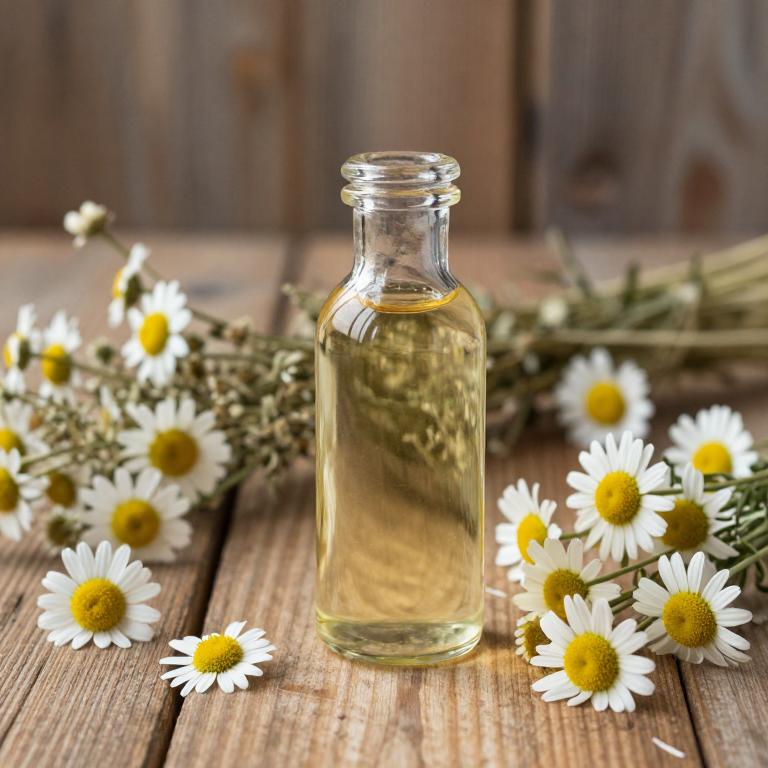
Matricaria chamomilla herbal syrups are used to soothe digestive discomfort and promote relaxation.
These syrups contain chamomile, a herb known for its calming properties and ability to ease gastrointestinal issues such as bloating, cramps, and indigestion. The natural compounds in chamomile, such as apigenin, have anti-inflammatory and antispasmodic effects that help reduce stomach irritation. They are often recommended for children and adults alike due to their mild and gentle nature.
Additionally, the pleasant aroma of chamomile in the syrup can help induce a sense of calm, making it a popular choice for stress relief and better sleep.
19. Field horsetail (Equisetum arvense)

Equisetum arvense herbal syrups are used to support respiratory health by alleviating symptoms of coughs and bronchitis due to their expectorant properties.
These syrups help to loosen mucus and promote easier breathing, making them beneficial for individuals suffering from chronic respiratory conditions. The natural compounds in Equisetum arvense, such as silica and flavonoids, contribute to its anti-inflammatory and antioxidant effects, which can soothe irritated airways. Additionally, the syrup's mild and soothing taste makes it more palatable for children and adults alike, enhancing its usability in home remedies.
Overall, Equisetum arvense herbal syrups offer a natural and effective alternative for managing respiratory discomfort and supporting overall lung function.
20. Aloe barbadensis

Aloe barbadensis herbal syrups are used to soothe digestive discomfort and promote gut health due to their mild laxative properties.
These syrups can help alleviate symptoms of constipation by stimulating bowel movements without causing harsh side effects. Additionally, they are known to have anti-inflammatory and antimicrobial qualities that may support overall digestive wellness. The natural composition of aloe barbadensis makes it a popular choice for those seeking gentle, plant-based remedies.
Overall, aloe barbadensis herbal syrups are valued for their ability to support digestive health while being gentle on the body.
21. English lavender (Lavandula angustifolia)
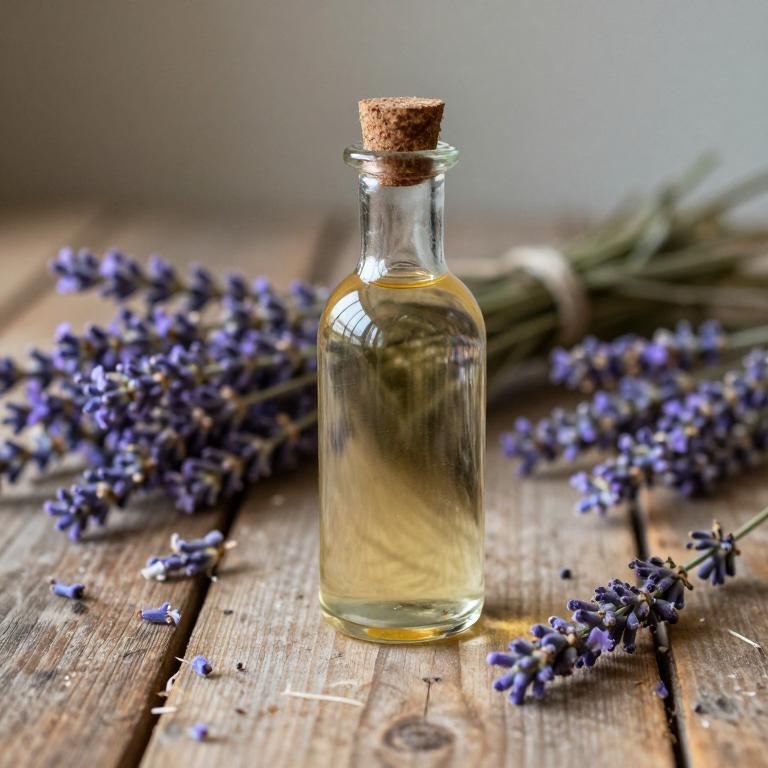
Lavandula angustifolia herbal syrups are used to soothe respiratory discomfort and promote relaxation due to their calming and antispasmodic properties.
These syrups are commonly incorporated into remedies for coughs, bronchitis, and other respiratory ailments, as the essential oils in lavender help ease inflammation and reduce mucus production. They are also valued for their ability to relieve stress and anxiety, making them a popular choice in aromatherapy and holistic health practices. The pleasant aroma of lavender enhances the overall sensory experience, encouraging a sense of well-being and aiding in better sleep.
Due to their natural composition and therapeutic benefits, these syrups are widely used in both traditional and modern herbal medicine.
22. Thyme (Thymus vulgaris)

Thymus vulgaris herbal syrups are used to support respiratory health by alleviating symptoms of coughs, colds, and bronchitis due to their expectorant and antimicrobial properties.
These syrups are also valued for their ability to boost the immune system, making them a popular remedy during seasonal flu outbreaks. The presence of thymol, a powerful phytochemical, contributes to their effectiveness in reducing inflammation and fighting bacterial infections. Additionally, thymus vulgaris syrups are often used to soothe sore throats and ease breathing in individuals with mild respiratory conditions.
Their natural formulation makes them a preferred choice for those seeking herbal alternatives to conventional medications.
23. Cumin (Cuminum cyminum)
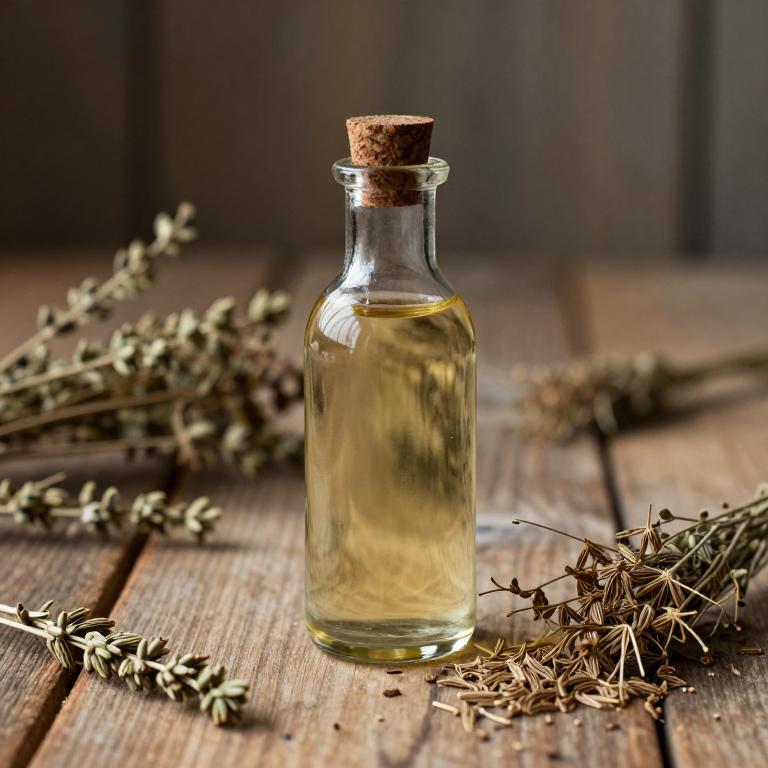
Cuminum cyminum herbal syrups are used to support digestive health by stimulating the production of digestive enzymes and promoting the movement of food through the gastrointestinal tract.
They are also known to help alleviate symptoms of indigestion, bloating, and gas due to their carminative properties. Additionally, these syrups may assist in reducing nausea and improving appetite, making them beneficial for individuals with weak digestion or those recovering from illness. The essential oils in cuminum cyminum have antimicrobial properties that can help in combating harmful bacteria in the gut.
Overall, their use is rooted in traditional medicine and is valued for their ability to enhance gut function and overall well-being.
24. Eucalyptus (Eucalyptus globulus)
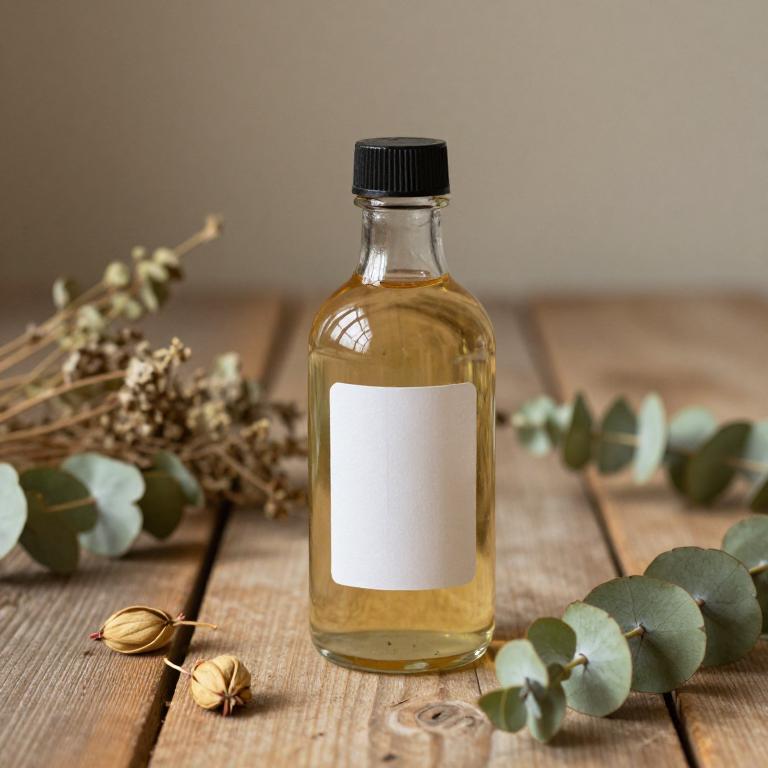
Eucalyptus globulus herbal syrups are used to alleviate symptoms of respiratory conditions such as coughs, colds, and bronchitis due to their expectorant and decongestant properties.
These syrups help loosen mucus in the airways, making it easier to expel and reducing congestion in the chest and throat. The active compounds, such as eucalyptol and cineole, have anti-inflammatory and antimicrobial effects that can soothe irritated tissues and combat respiratory infections. They are often recommended for children and adults alike as a natural remedy for mild respiratory discomfort.
Their pleasant menthol-like scent also provides a calming effect, enhancing their therapeutic value.
25. German chamomile (Chamomilla recutita)
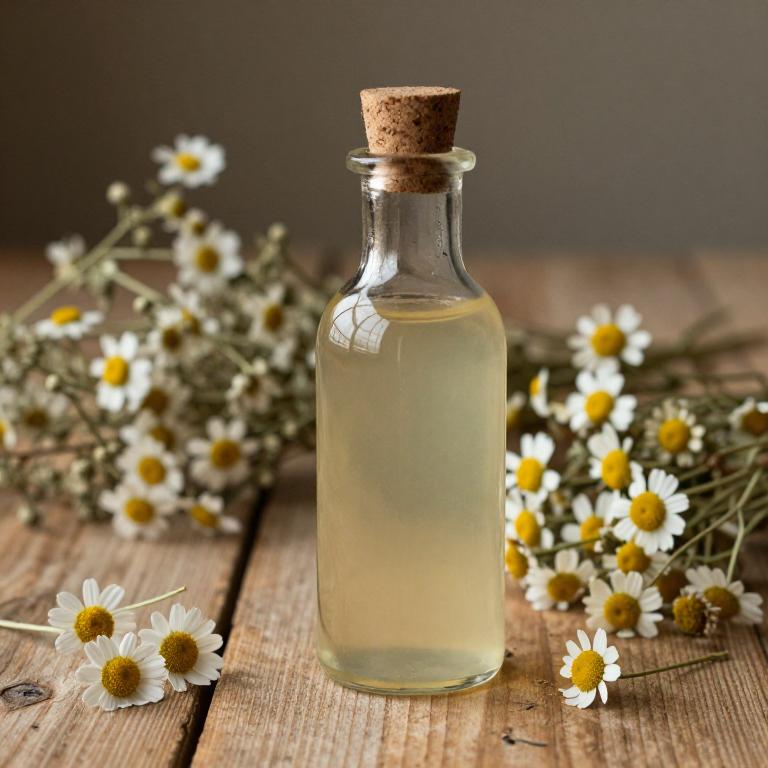
Chamomilla recutita herbal syrups are used to relieve symptoms of digestive discomfort, such as bloating, gas, and indigestion, due to their calming and antispasmodic properties.
These syrups are also commonly used to soothe mild anxiety and promote relaxation, making them a popular choice for stress-related issues. The active compounds in chamomilla, such as flavonoids and essential oils, contribute to its anti-inflammatory and mild sedative effects. Because of their pleasant taste and ease of administration, these syrups are often recommended for children and elderly individuals.
Overall, chamomilla recutita herbal syrups offer a natural and gentle option for addressing a range of mild health concerns.
26. Marigold (Calendula officinalis)
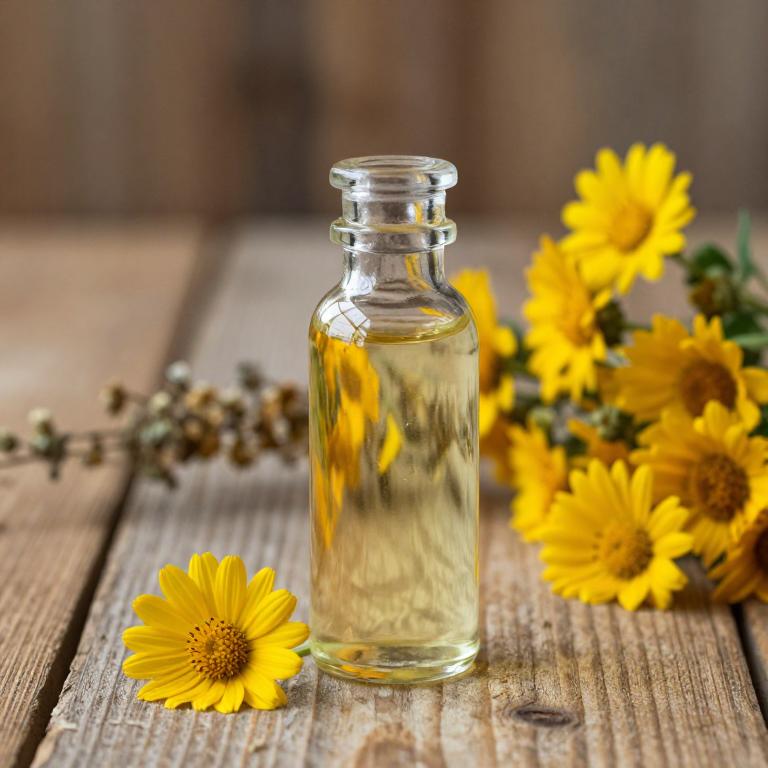
Calendula officinalis herbal syrups are used to support digestive health and ease symptoms of gastrointestinal discomfort.
These syrups contain anti-inflammatory and soothing properties that can help alleviate symptoms such as bloating, indigestion, and mild stomach irritation. They are also valued for their ability to promote wound healing and reduce skin inflammation when applied topically. The presence of antioxidants in calendula officinalis contributes to its ability to support the immune system and combat oxidative stress.
Due to their mild nature, these syrups are often recommended for children and adults alike as a natural remedy for common ailments.
27. Ginkgo (Ginkgo biloba)
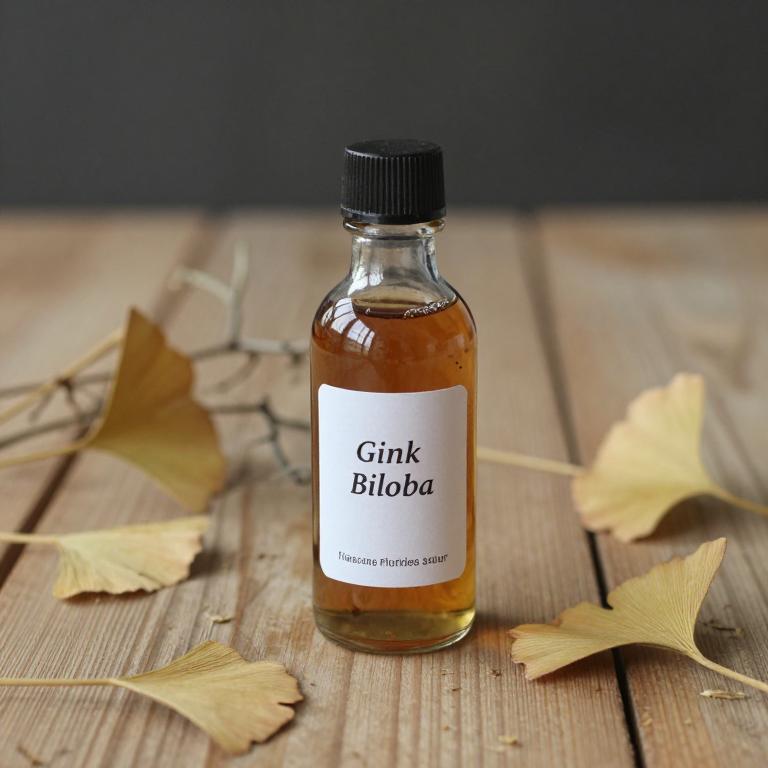
Ginkgo biloba herbal syrups are used to improve cognitive function and enhance mental clarity by increasing blood flow to the brain.
They are also commonly used to support memory and concentration, making them popular among students and older adults. The active compounds in ginkgo biloba, such as flavonoids and terpenoids, are believed to protect brain cells from damage and reduce oxidative stress. Additionally, these syrups may help alleviate symptoms of anxiety and depression by promoting relaxation and emotional balance.
Due to their natural composition and potential health benefits, ginkgo biloba herbal syrups are a favored choice for those seeking holistic wellness solutions.
28. Common grape (Vitis vinifera)

Vitis vinifera herbal syrups are used to support respiratory health by helping to alleviate symptoms of coughs, colds, and bronchitis due to their expectorant and anti-inflammatory properties.
These syrups are also commonly used to soothe sore throats and reduce inflammation in the throat lining, making them a popular choice for those suffering from minor respiratory infections. The presence of antioxidants and flavonoids in Vitis vinifera contributes to their ability to strengthen the immune system and promote overall wellness. Additionally, they are often recommended for their calming effects, which can help ease stress-related symptoms and improve sleep quality.
Due to their natural composition and mild effects, these syrups are considered safe for both adults and children when used as directed.
29. Black elderberry (Sambucus nigra)
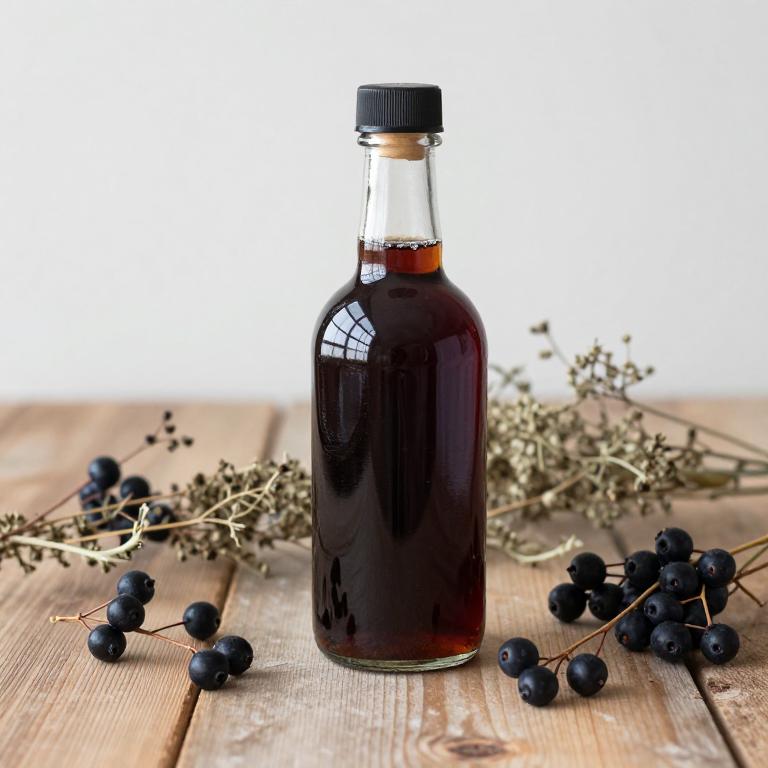
Sambucus nigra herbal syrups are used to support immune function and alleviate symptoms of colds and flu due to their antiviral and anti-inflammatory properties.
These syrups are often recommended for their ability to reduce fever and soothe sore throats, making them a popular remedy during seasonal respiratory illnesses. The active compounds in sambucus nigra, such as flavonoids and anthocyanins, contribute to its antioxidant effects, which help protect the body from oxidative stress. Additionally, the syrup's mild taste and easy absorption make it a suitable option for children and adults alike.
Overall, sambucus nigra herbal syrups are valued for their natural approach to boosting immunity and providing relief from common cold symptoms.
30. Valerian (Valeriana officinalis)
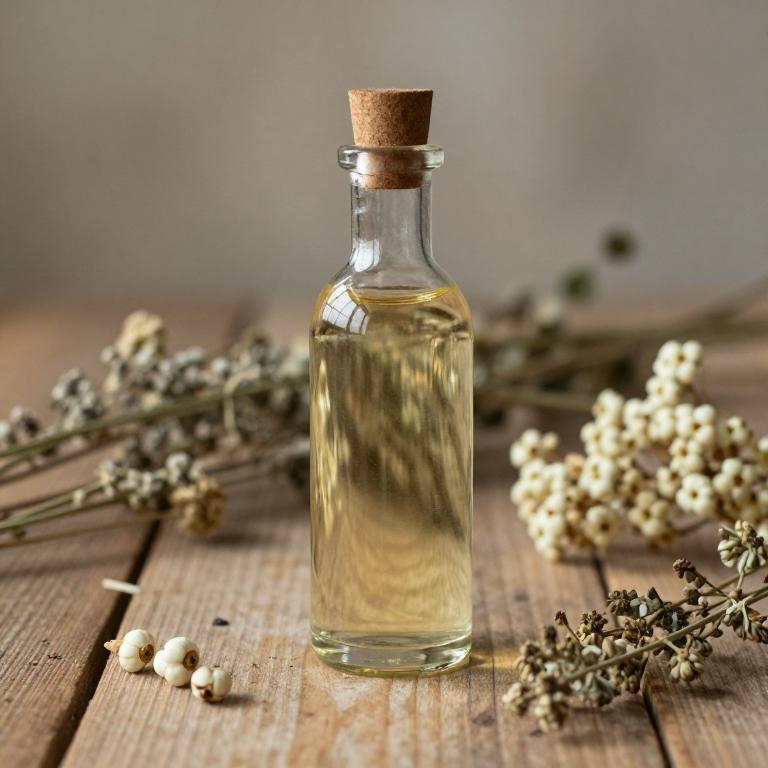
Valeriana officinalis herbal syrups are used to promote relaxation and alleviate symptoms of anxiety and insomnia.
These syrups are valued for their calming properties, which help reduce restlessness and ease nervous tension. They are commonly recommended for individuals suffering from stress-related disorders or sleep disturbances. The active compounds in valerian root, such as valerenic acid, are believed to interact with the central nervous system to produce these effects.
Due to their natural composition and mild side effect profile, valeriana officinalis syrups are a popular choice for those seeking alternative remedies for mild sleep issues and emotional well-being.
31. Camellia (Camellia sinensis)
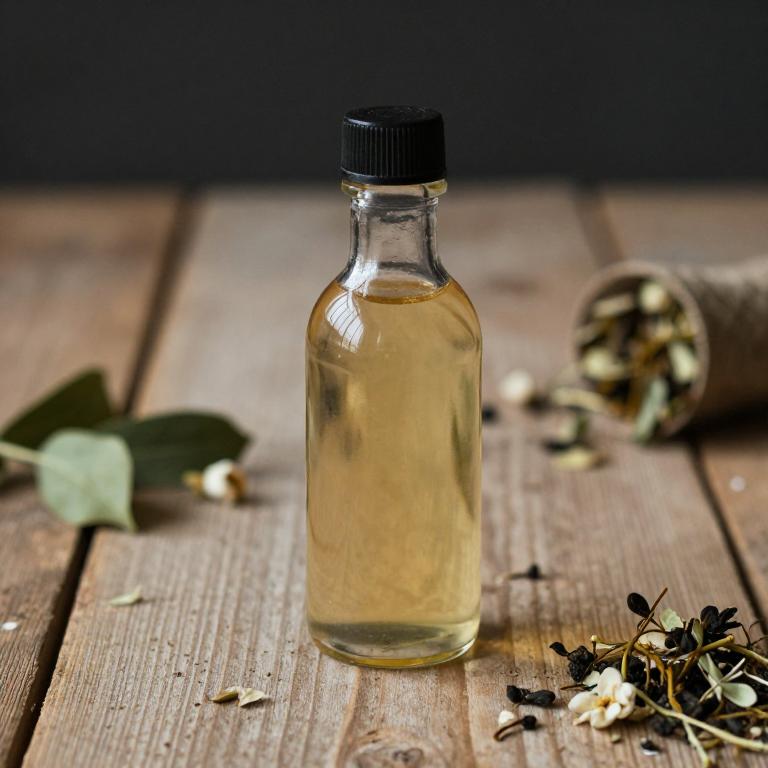
Camellia sinensis herbal syrups are used to support overall health and wellness through their rich content of antioxidants and bioactive compounds.
These syrups are commonly consumed to boost energy levels and enhance mental clarity due to their caffeine and L-theanine content. They are also used to aid digestion and reduce stress, as they contain compounds that promote relaxation and gastrointestinal function. Additionally, camellia sinensis syrups are valued for their potential role in improving metabolic function and supporting immune health.
Their versatility and natural formulation make them a popular choice for those seeking holistic health benefits.
32. Panax ginseng (Panax ginseng)
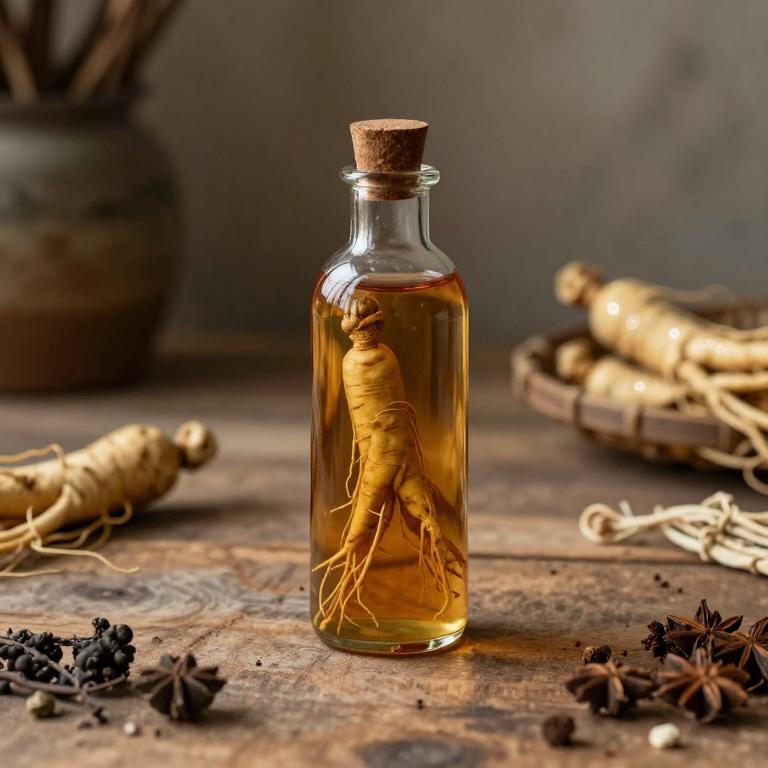
Panax ginseng herbal syrups are used to enhance energy levels and reduce fatigue by stimulating the central nervous system and improving physical endurance.
They are also utilized to support cognitive function, helping to enhance memory, focus, and mental clarity, which makes them popular among students and professionals. Additionally, these syrups are believed to strengthen the immune system, making the body more resistant to common illnesses and infections. Some individuals use panax ginseng syrups to manage stress and anxiety, as they may help regulate the body's stress response and promote emotional balance.
Overall, the versatility of panax ginseng herbal syrups makes them a valuable natural remedy for a range of health and wellness needs.
33. Black cohosh (Cimicifuga racemosa)
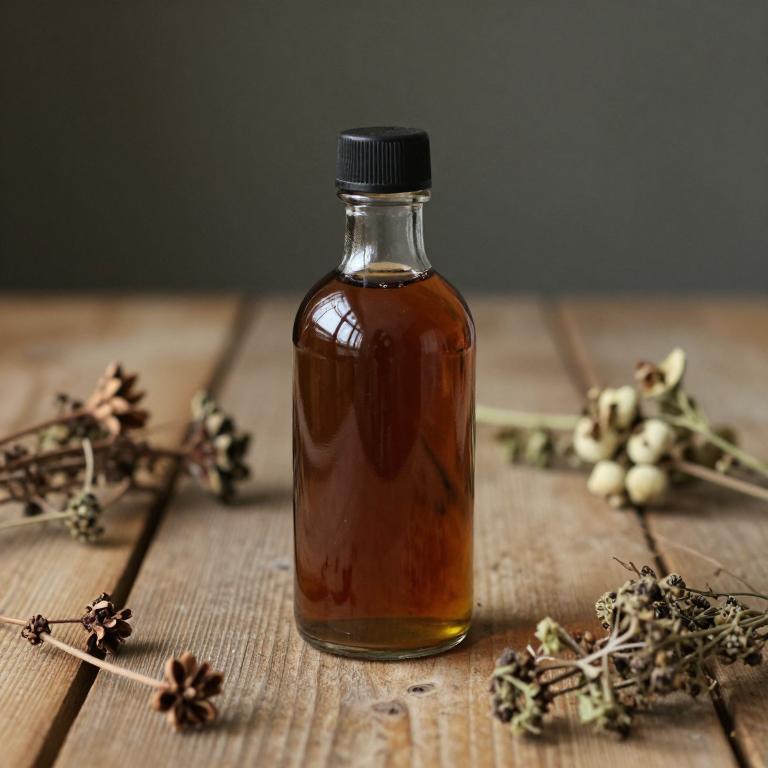
Cimicifuga racemosa herbal syrups are used to support hormonal balance and alleviate symptoms associated with menopause, such as hot flashes and night sweats.
These syrups are often recommended for women experiencing hormonal fluctuations due to their phytoestrogen content, which may help modulate estrogen activity in the body. Additionally, they are used to ease menstrual discomfort, including cramps and mood swings, by influencing the body's endocrine system. The herbal formulation is typically preferred for its natural composition, offering a gentler alternative to synthetic hormone therapies.
Due to their historical use in traditional medicine and growing scientific interest, cimicifuga racemosa syrups continue to be a popular choice for women's health support.
34. Mountain arnica (Arnica montana)
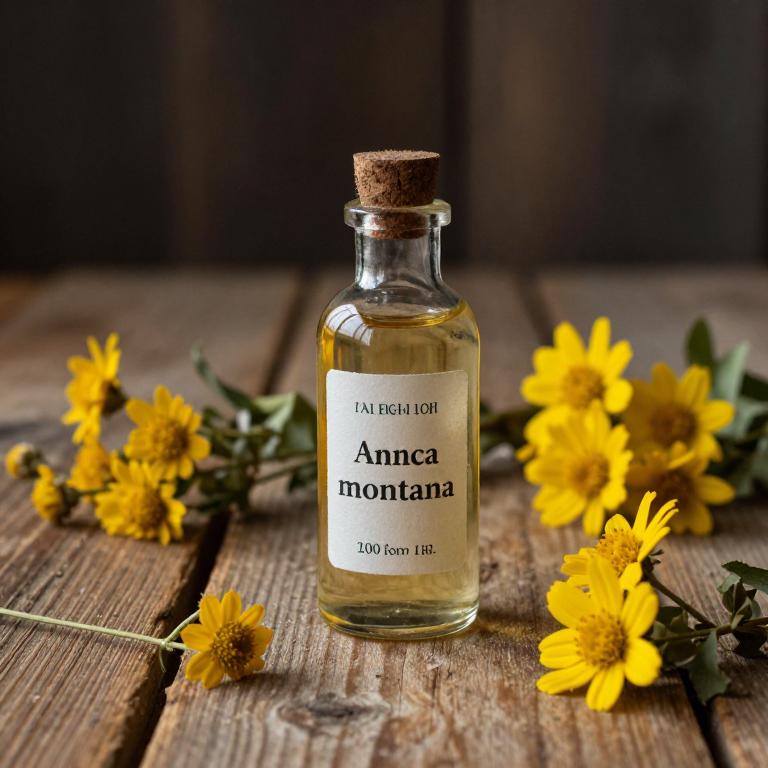
Arnica montana herbal syrups are used to alleviate pain and inflammation associated with bruises, sprains, and muscle aches by promoting circulation and reducing swelling.
These syrups are often recommended for their natural anti-inflammatory properties, which can help ease symptoms of conditions like arthritis or rheumatism. They are also used topically in some formulations to support the healing process of minor wounds and skin irritations. The active compounds in arnica montana, such as helenalin and other sesquiterpene lactones, are believed to contribute to its therapeutic effects.
Due to their gentle yet effective nature, these syrups are a popular choice for those seeking natural remedies for musculoskeletal discomfort.
35. Lemon balm (Melissa officinalis)
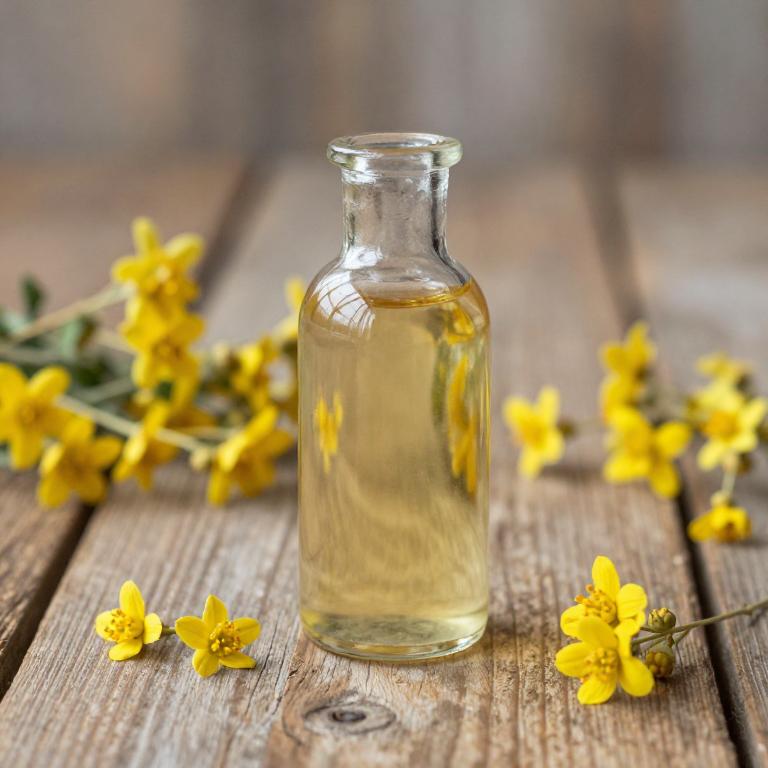
Melissa officinalis herbal syrups are used to support digestive health by promoting the secretion of digestive enzymes and reducing gastrointestinal discomfort.
They are also commonly utilized to alleviate symptoms of anxiety and stress due to their calming properties, which can help promote relaxation and improve mood. The syrup's natural antibacterial and antiviral properties make it useful in supporting the immune system during colds and infections. Additionally, melissa officinalis syrups are often recommended for their potential to soothe sore throats and ease symptoms of respiratory conditions.
These benefits are attributed to the presence of active compounds such as flavonoids and volatile oils, which contribute to its therapeutic effects.
36. White water lily (Nymphaea alba)
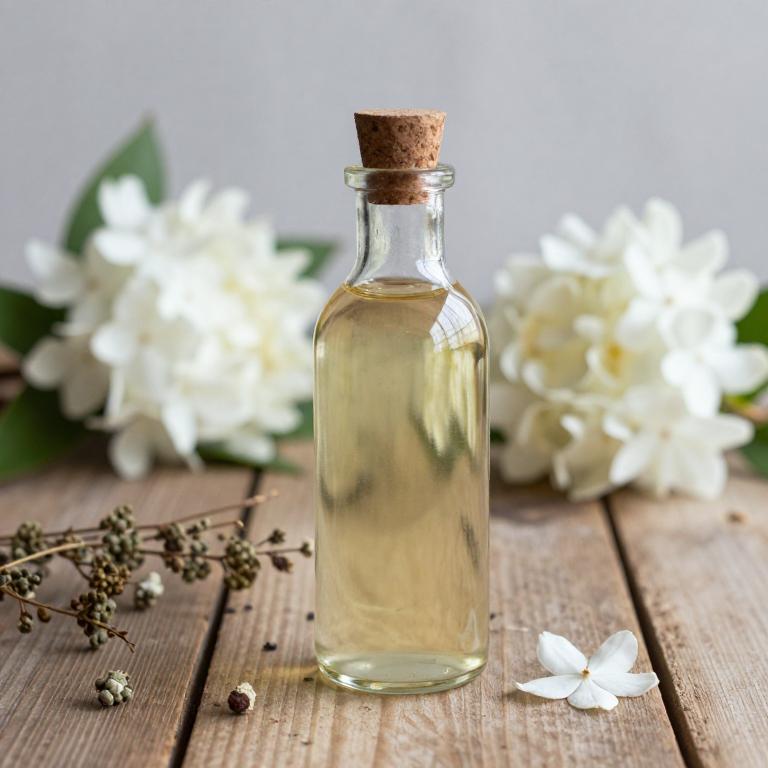
Nymphaea alba herbal syrups are used to support respiratory health by alleviating symptoms of coughs and colds due to their expectorant properties.
These syrups help loosen mucus in the airways, making it easier to expel and thus reducing congestion. They are also valued for their calming effects, which can soothe irritated throats and ease breathing during respiratory distress. The natural ingredients in nymphaea alba contribute to their antiseptic and anti-inflammatory benefits, promoting overall respiratory wellness.
Because of these properties, nymphaea alba herbal syrups are a popular choice for both traditional and modern herbal remedies.
37. Ceylon cinnamon (Cinnamomum zeylanicum)
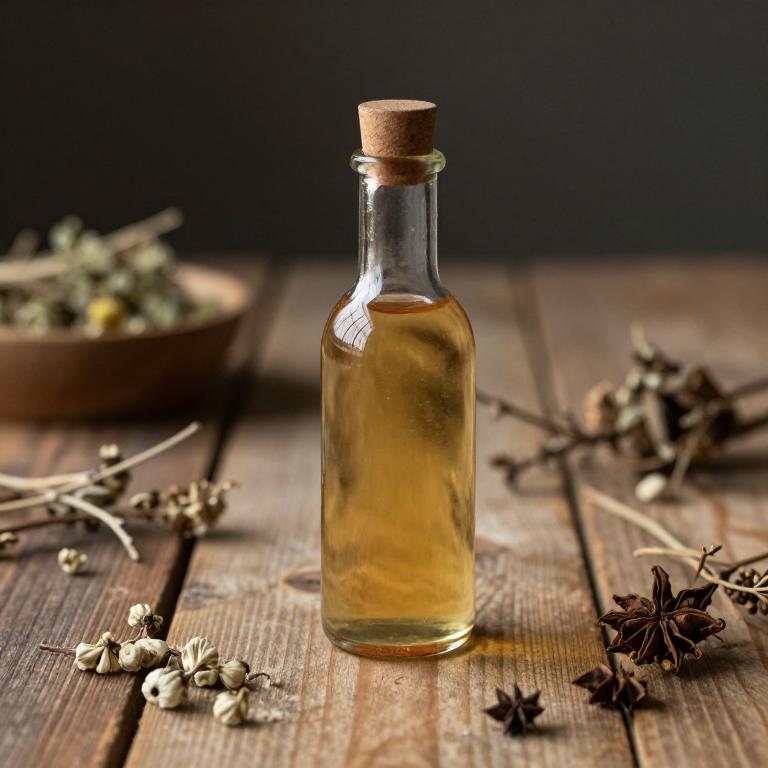
Cinnamomum zeylanicum herbal syrups are used to support respiratory health by helping to relieve symptoms of coughs and colds due to their expectorant and anti-inflammatory properties.
These syrups are also beneficial for digestive wellness, as they can soothe irritation in the gastrointestinal tract and promote healthy digestion. Additionally, they are often used to improve circulation and reduce inflammation, making them useful in managing conditions like arthritis or muscle pain. The warming properties of cinnamon make it a popular remedy for boosting immunity and alleviating symptoms of seasonal allergies.
Overall, cinnamomum zeylanicum herbal syrups are valued for their natural therapeutic effects and versatility in addressing various health concerns.
38. Black cumin (Nigella sativa)
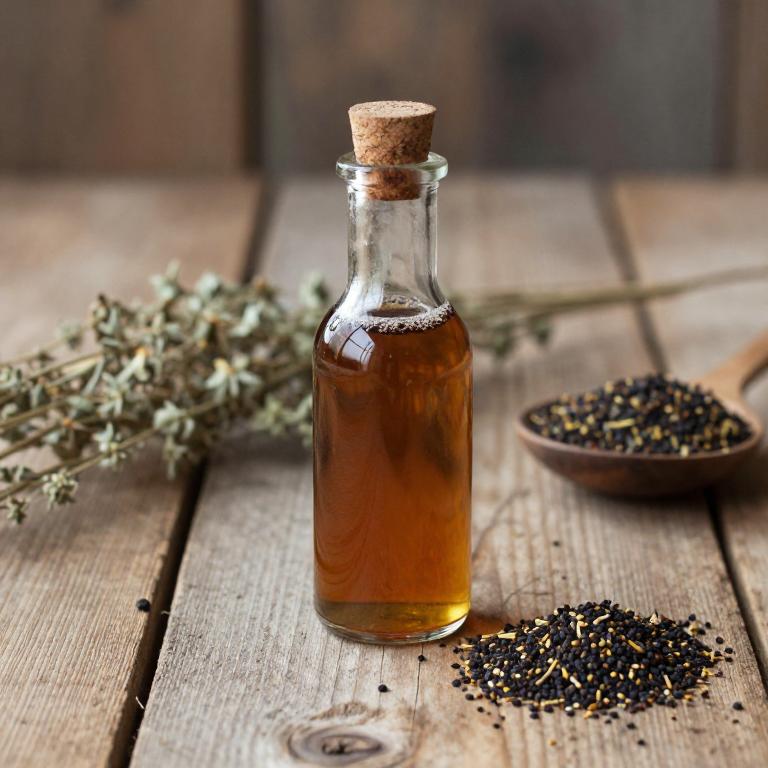
Nigella sativa herbal syrups are used to support respiratory health by helping to alleviate symptoms of coughs, colds, and bronchitis due to their expectorant and anti-inflammatory properties.
These syrups are also valued for their ability to boost the immune system, thanks to the presence of active compounds like thymoquinone, which have antimicrobial and antioxidant effects. Additionally, they are commonly used to relieve digestive discomfort, such as bloating and indigestion, by promoting healthy gut function. The soothing nature of the syrup makes it a popular remedy for easing throat irritation and reducing inflammation in the respiratory tract.
Overall, the versatility and therapeutic benefits of nigella sativa herbal syrups make them a valuable natural remedy in traditional and modern herbal medicine.
39. Common mallow (Symphytum officinale)
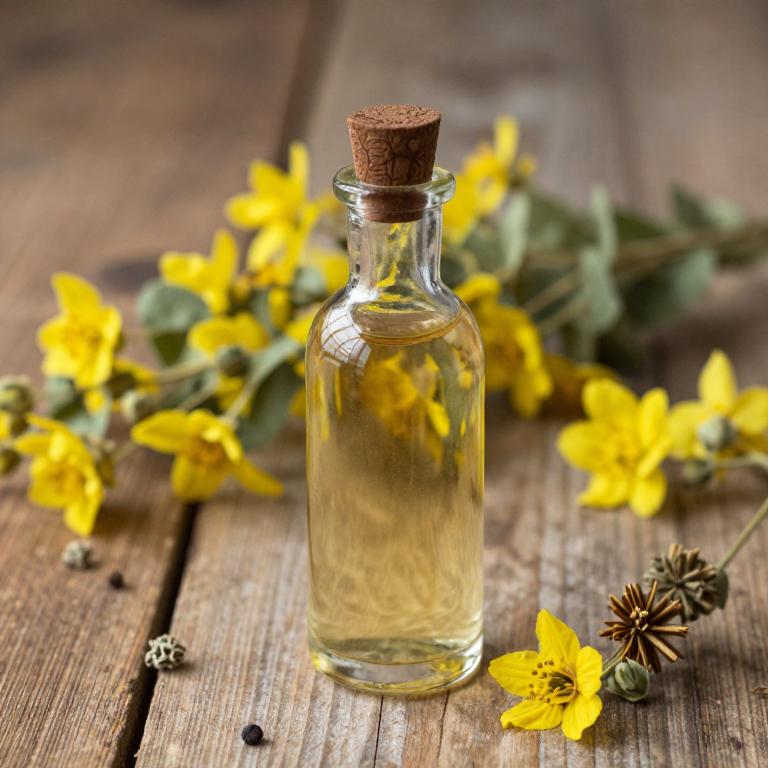
Symphytum officinale herbal syrups are used to support the healing of bone fractures and joint injuries due to their rich content of allantoin and mucilage, which promote tissue regeneration and reduce inflammation.
These syrups are also valued for their ability to alleviate symptoms of respiratory conditions such as bronchitis and coughs by soothing irritated mucous membranes. Additionally, they are commonly used to relieve pain and inflammation associated with rheumatic conditions and muscular aches. The soothing properties of the syrup make it a popular choice for topical application as well as internal use.
Overall, symphytum officinale herbal syrups are favored for their natural healing properties and versatility in addressing a range of health concerns.
40. Sanguisorba (Sanguisorba officinalis)
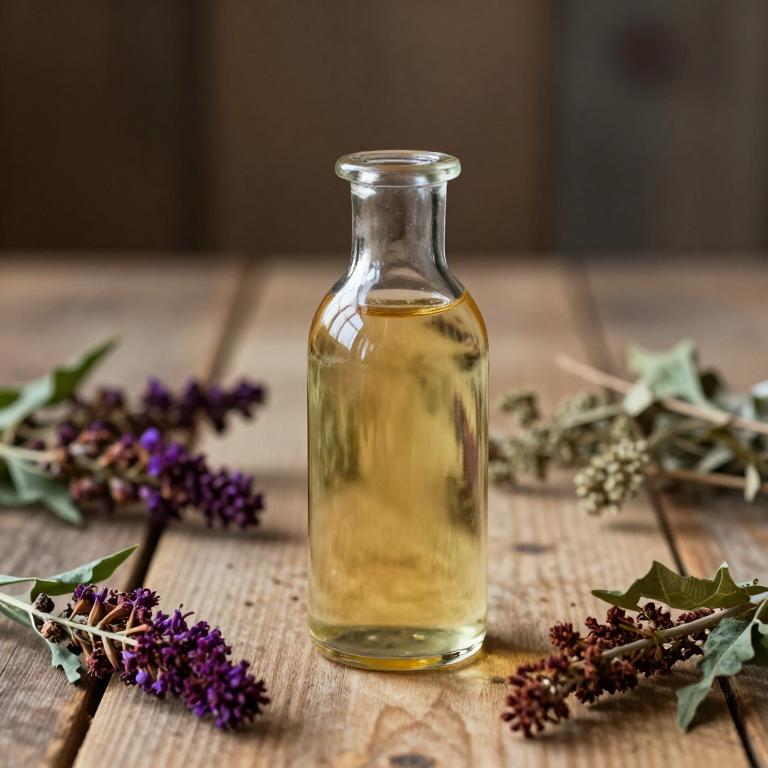
Sanguisorba officinalis herbal syrups are used to support respiratory health by helping to reduce coughing and soothe irritated throats.
These syrups are particularly beneficial for individuals suffering from conditions such as bronchitis or the common cold due to their expectorant properties. The plant contains compounds that may help loosen mucus and ease breathing, making it a popular choice in traditional herbal medicine. Additionally, sanguisorba officinalis is believed to have mild anti-inflammatory effects, which can further aid in alleviating symptoms associated with respiratory infections.
Overall, these syrups are valued for their natural approach to managing respiratory discomfort and promoting overall wellness.
41. Oregano (Origanum vulgare)
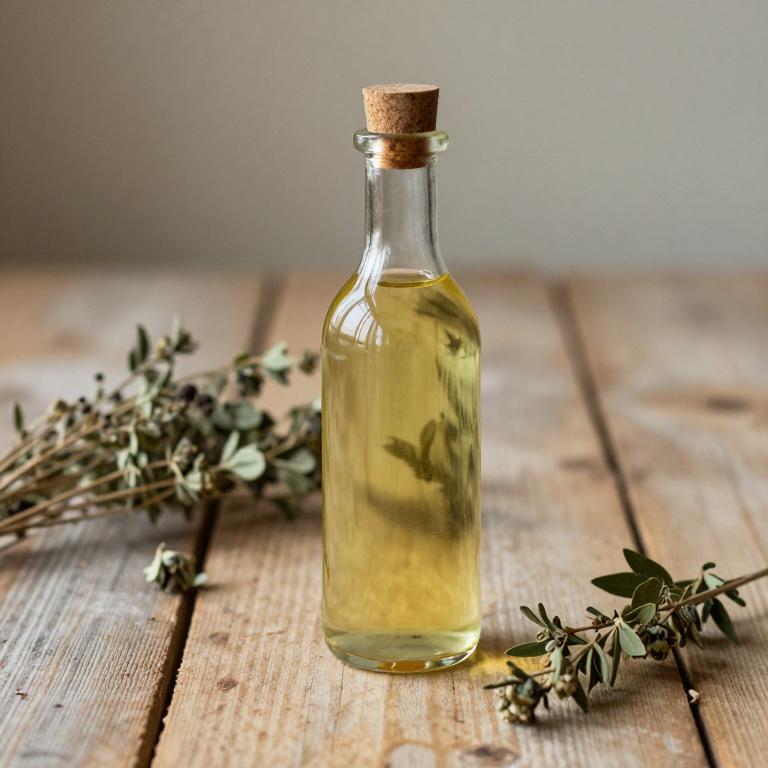
Origianum vulgare herbal syrups are used to support respiratory health by helping to alleviate symptoms of coughs, colds, and bronchitis due to their expectorant and anti-inflammatory properties.
These syrups are also valued for their ability to soothe sore throats and reduce irritation, making them a popular choice for easing discomfort during seasonal illnesses. The natural compounds in origanum vulgare, such as thymol and carvacrol, contribute to its antimicrobial and antioxidant effects, which can help boost the immune system. Additionally, they are often used in traditional medicine to aid digestion and relieve gastrointestinal discomfort.
Because of their gentle yet effective nature, origanum vulgare herbal syrups are a preferred option for both adults and children seeking natural remedies for common ailments.
42. Maypop (Passiflora incarnata)
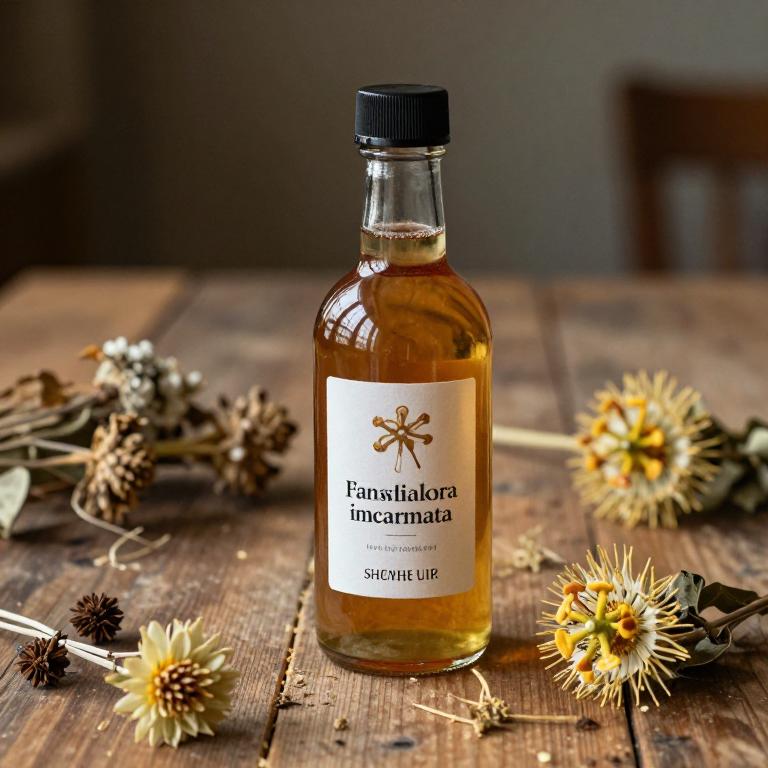
Passiflora incarnata herbal syrups are used to promote relaxation and ease anxiety due to their calming properties.
These syrups are often recommended for individuals experiencing mild to moderate stress or insomnia, as they can help induce a sense of tranquility. The active compounds in passiflora incarnata, such as flavonoids and alkaloids, are believed to interact with the central nervous system to reduce nervous tension. Additionally, they may support better sleep quality by helping to regulate sleep-wake cycles.
Because of their natural composition and mild effects, passiflora incarnata syrups are considered a safe alternative for those seeking non-pharmacological remedies for stress and sleep issues.
43. Centella (Centella asiatica)
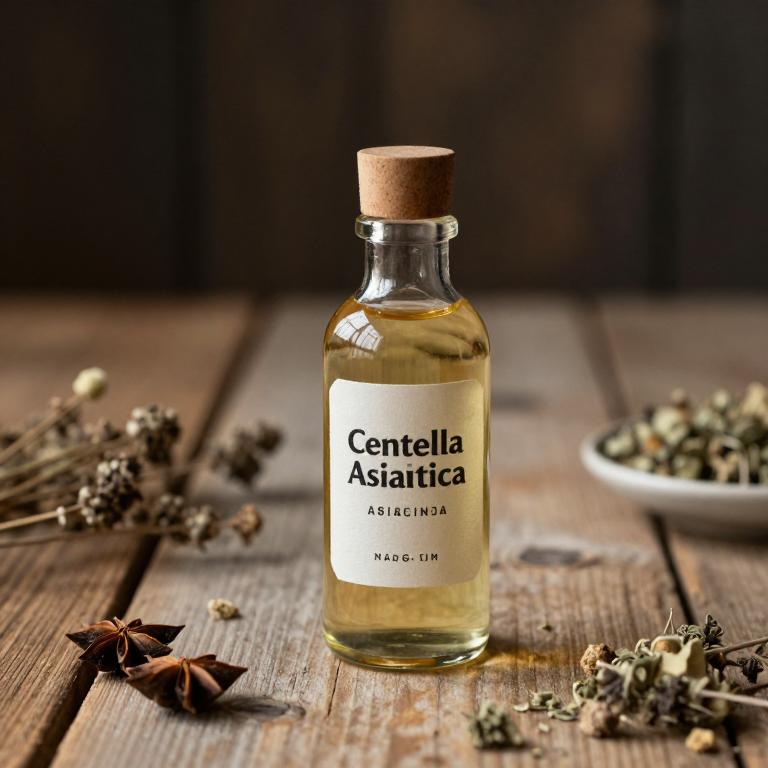
Centella asiatica herbal syrups are used to promote skin healing and enhance wound recovery due to their rich content of active compounds like asiatic acid and madecassic acid, which stimulate collagen production and improve tissue regeneration.
These syrups are also beneficial for improving circulation and reducing inflammation, making them useful in treating varicose veins and other circulatory disorders. Additionally, they are often incorporated into traditional medicine to support mental clarity and reduce stress, thanks to their calming effects on the nervous system. The natural antioxidants in centella asiatica help protect the body from oxidative stress, contributing to overall health and well-being.
Because of these diverse benefits, centella asiatica herbal syrups are increasingly popular in both conventional and alternative health practices.
44. Golden root (Rhodiola rosea)
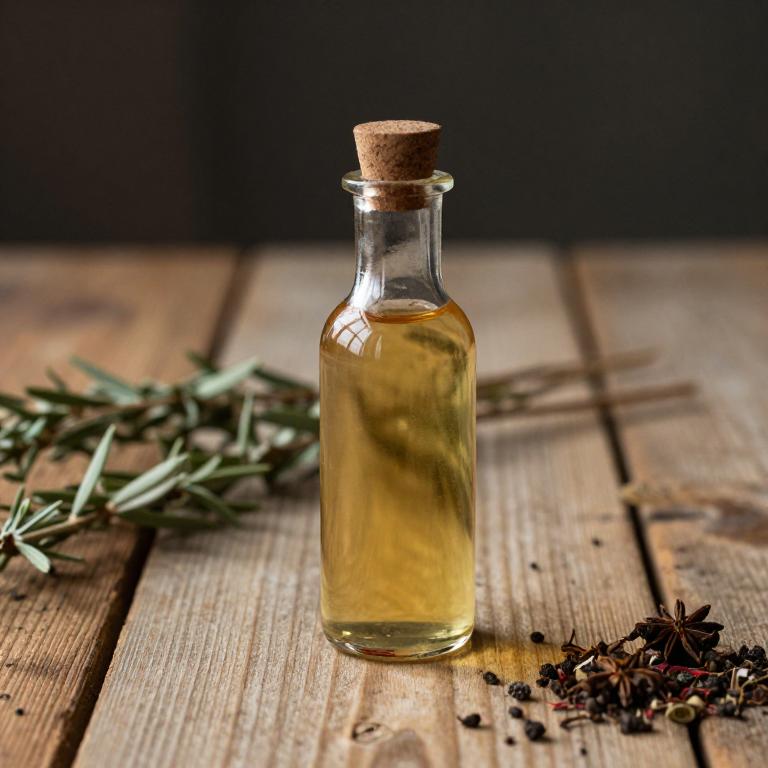
Rhodiola rosea herbal syrups are used to enhance energy levels and reduce fatigue by supporting the body's ability to cope with stress.
They are particularly beneficial for individuals experiencing mental and physical exhaustion, as the active compounds in rhodiola rosea help regulate stress hormones like cortisol. These syrups are also known to improve cognitive function, making them popular among students and professionals seeking mental clarity and focus. Additionally, they may support immune function and promote overall well-being by balancing the body's systems.
Due to their adaptogenic properties, rhodiola rosea herbal syrups are increasingly favored as a natural remedy for managing stress and boosting vitality.
45. Heartworts (Leonurus cardiaca)
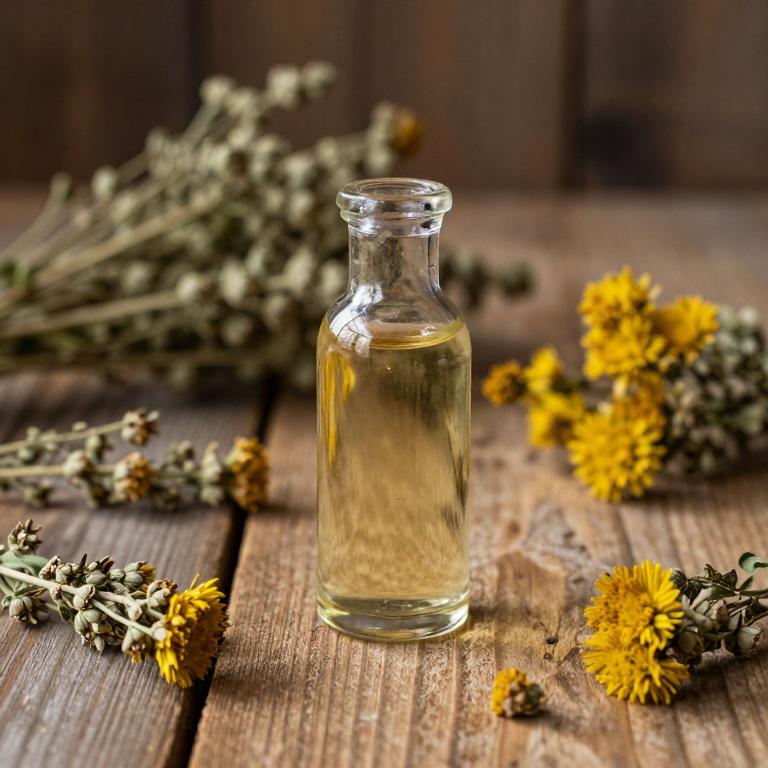
Leonurus cardiaca herbal syrups are used to support cardiovascular health and enhance circulation due to their rich content of bioactive compounds such as flavonoids and tannins.
These syrups are commonly employed to alleviate symptoms of mild heart conditions, including irregular heartbeats and poor blood flow. The herb is believed to strengthen heart muscles and improve overall cardiac function, making it a popular choice in traditional medicine. Additionally, leonurus cardiaca syrups may help reduce inflammation and oxidative stress, contributing to long-term heart wellness.
Their mild nature and pleasant taste make them suitable for both adults and children, enhancing their accessibility and ease of use.
46. Scots pine (Pinus sylvestris)
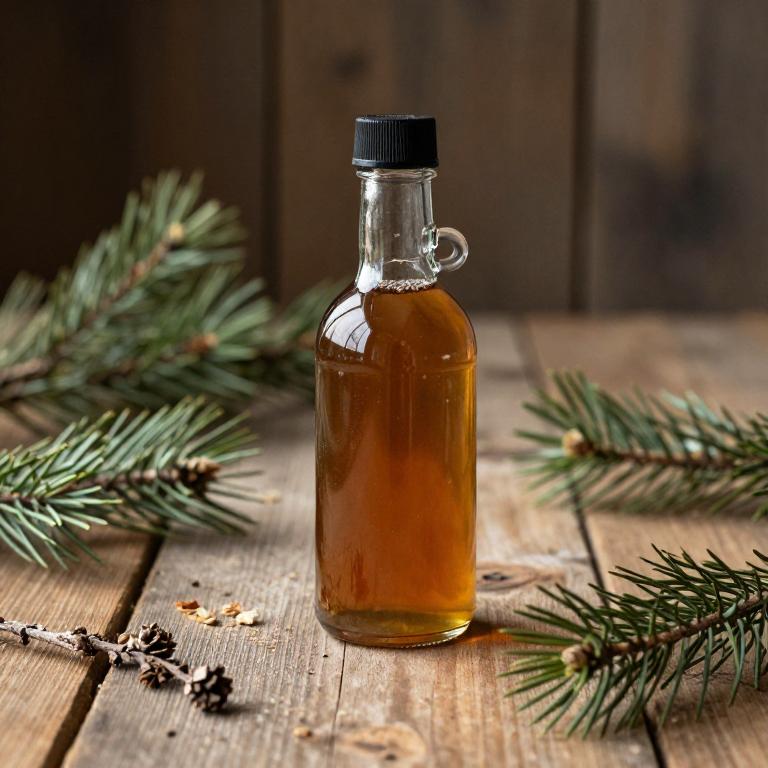
Pinus sylvestris herbal syrups are used to support respiratory health by helping to alleviate symptoms of coughs, colds, and bronchitis due to their expectorant properties.
These syrups are also valued for their ability to soothe irritated throats and reduce inflammation, making them a popular remedy for soreness and discomfort. The natural ingredients in pinus sylvestris syrups, such as pine resin and essential oils, contribute to their antimicrobial and antiviral effects, enhancing their therapeutic value. Additionally, they are often used in traditional medicine to promote overall immune system function and aid in the recovery from respiratory infections.
Their pleasant taste and ease of administration make them suitable for both adults and children, further increasing their accessibility and effectiveness in home remedies.
47. Parsley (Petroselinum crispum)
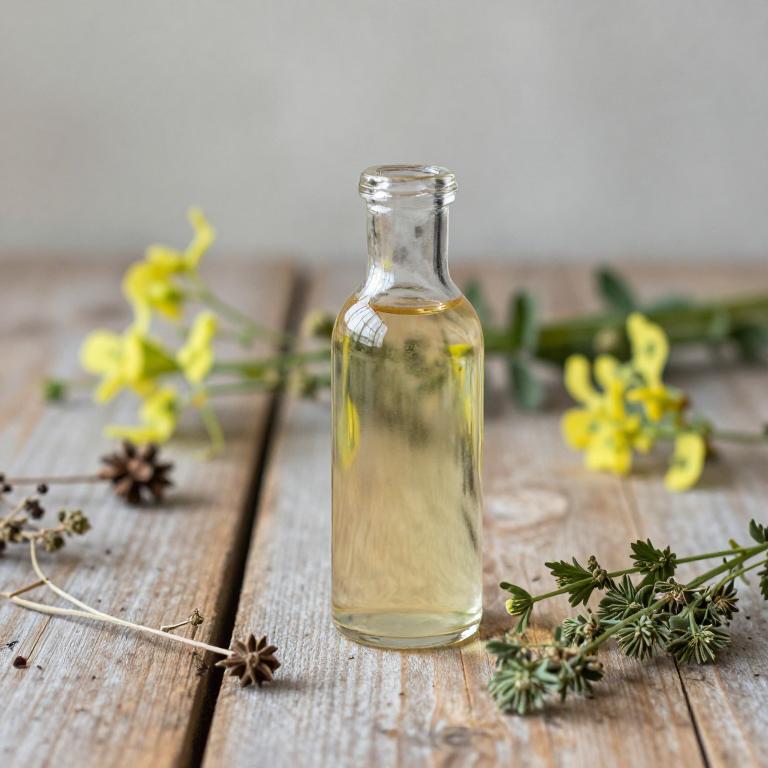
Petroselinum crispum herbal syrups are used to support digestive health and alleviate symptoms of indigestion and bloating.
These syrups contain parsley, which is rich in antioxidants and has natural anti-inflammatory properties. They are also known to help reduce nausea and promote a sense of well-being by calming the digestive system. The mild, fresh aroma of parsley in the syrup can have a soothing effect on the mind and body.
Due to their gentle nature, petroselinum crispum herbal syrups are often recommended for regular use in maintaining overall digestive wellness.
48. Buckwheat (Plantago ovata)
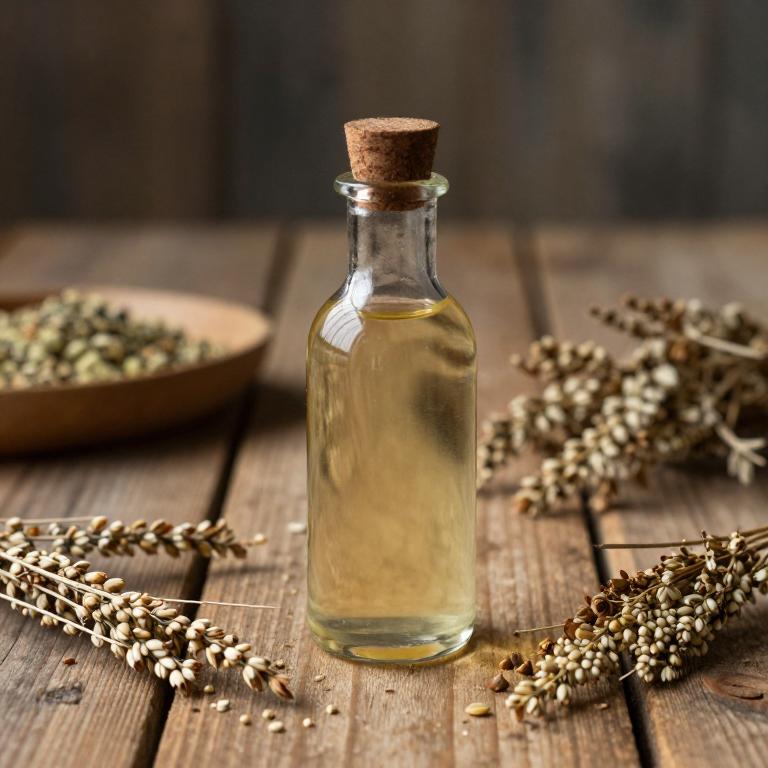
Plantago ovata herbal syrups are used to support digestive health and promote regular bowel movements due to their high mucilage content, which acts as a natural bulk-forming agent.
They are particularly beneficial for individuals suffering from constipation, as the syrup helps soften stools and ease their passage through the intestines. Additionally, plantago ovata syrups are valued for their soothing properties, which can help reduce inflammation in the gastrointestinal tract. The herbal syrup is also believed to aid in detoxification by supporting the body's natural elimination processes.
Because of these benefits, plantago ovata herbal syrups are widely used in traditional medicine and herbal remedies for digestive wellness.
49. Anise (Pimpinella anisum)
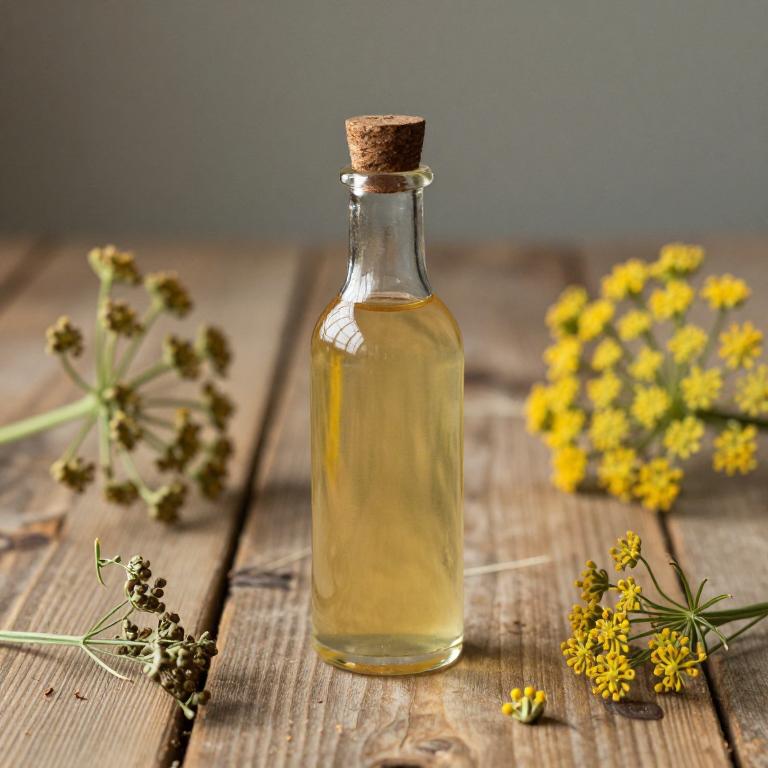
Pimpinella anisum herbal syrups are used to soothe respiratory discomfort and ease symptoms of coughs and colds due to their expectorant and antispasmodic properties.
These syrups can help loosen mucus in the airways, making it easier to expel and providing relief from congestion. They are also commonly used to alleviate digestive issues such as bloating and gas because of the herb's carminative effects. The pleasant licorice-like flavor of anise makes it palatable for children and adults alike, enhancing its effectiveness as a natural remedy.
Overall, pimpinella anisum herbal syrups are valued for their ability to support respiratory and digestive health with a mild and safe profile.
50. Ashwagandha (Withania somnifera)
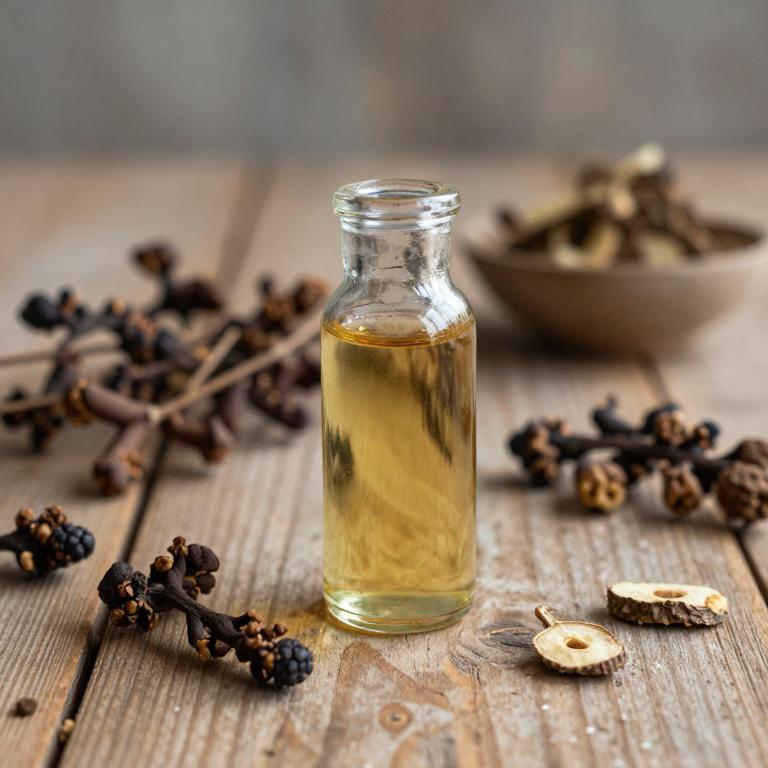
Withania somnifera herbal syrups are used to promote relaxation and alleviate symptoms of stress and anxiety.
These syrups are particularly beneficial for individuals seeking natural remedies to improve sleep quality and reduce insomnia. The active compounds in Withania somnifera, such as alkaloids and steroidal lactones, are known to support the nervous system and enhance overall well-being. They are often recommended for use in holistic health practices to manage chronic fatigue and emotional disturbances.
Due to their mild and calming effects, these syrups are a preferred choice for those looking for non-pharmacological support in maintaining mental and physical health.
51. Kava (Piper methysticum)
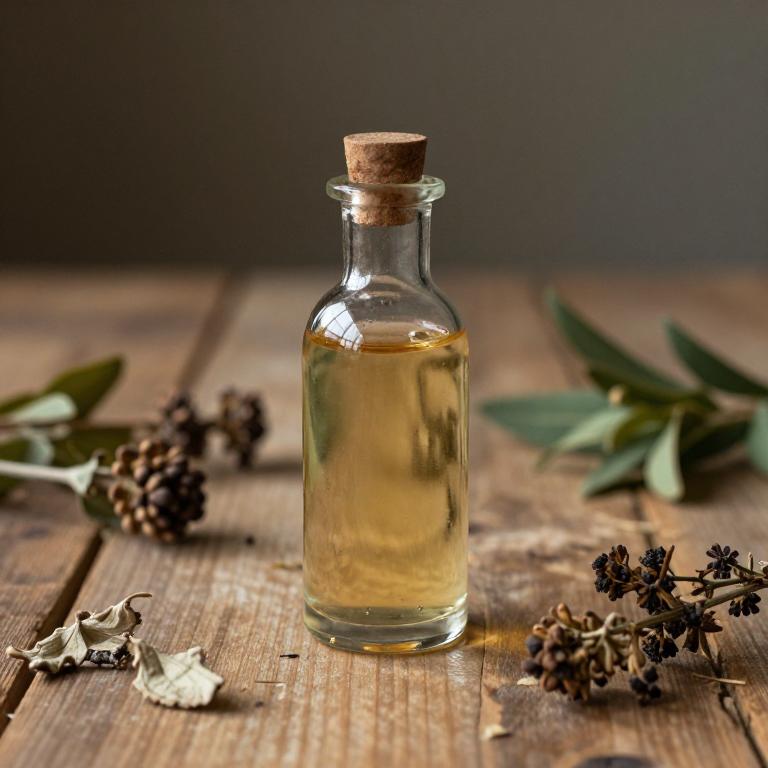
Piper methysticum herbal syrups are used to support mental clarity and emotional balance by promoting relaxation and reducing anxiety.
These syrups are often incorporated into traditional practices, such as in the preparation of kava, which has been used for centuries in Pacific Island cultures for its calming effects. The active compounds in piper methysticum, such as kavalactones, interact with the central nervous system to induce a sense of well-being without causing drowsiness. They are also valued for their potential to alleviate stress and enhance social interactions, making them popular in both ceremonial and therapeutic contexts.
Due to their soothing properties, these syrups are increasingly sought after for their role in modern wellness routines aimed at stress relief and mental health support.
52. Garlic (Allium sativum)
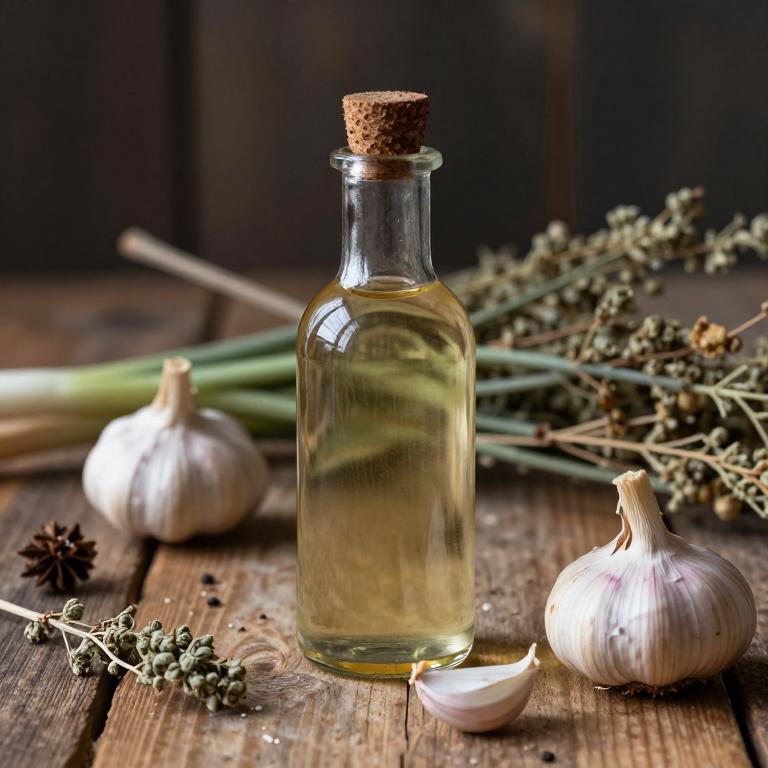
Allium sativum herbal syrups are used to support respiratory health by helping to alleviate symptoms of coughs and colds due to their antimicrobial and anti-inflammatory properties.
These syrups can also aid in digestion by stimulating the production of digestive enzymes and reducing gastrointestinal discomfort. Additionally, they are often used to enhance immune function, making the body more resilient against infections. The presence of compounds like allicin contributes to their effectiveness in reducing oxidative stress and promoting overall wellness.
Because of these benefits, allium sativum herbal syrups are a popular natural remedy for boosting health and preventing illness.
53. Puncture vine (Tribulus terrestris)
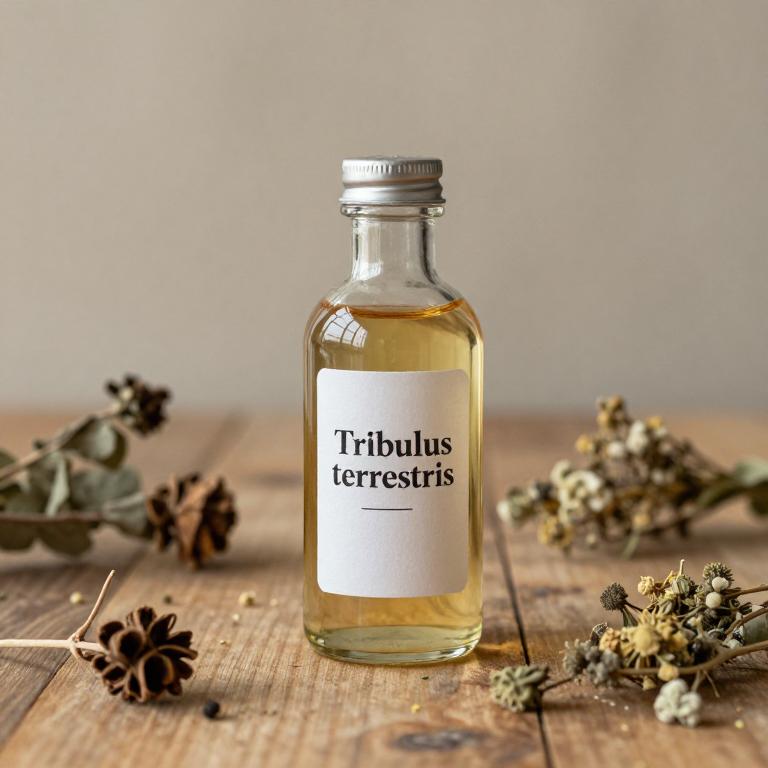
Tribulus terrestris herbal syrups are used to enhance vitality and support overall wellness by promoting energy levels and reducing fatigue.
They are often recommended for their potential to improve sexual health and libido, making them a popular choice for individuals seeking natural support for reproductive health. The active compounds in these syrups, such as saponins, are believed to contribute to their ability to boost stamina and physical performance. Additionally, they may aid in stress relief and enhance mood, which can have a positive impact on mental well-being.
Due to their natural composition and holistic benefits, tribulus terrestris herbal syrups are increasingly favored as a complementary remedy in alternative medicine.
54. St. john's wort (Agrimonia eupatoria)
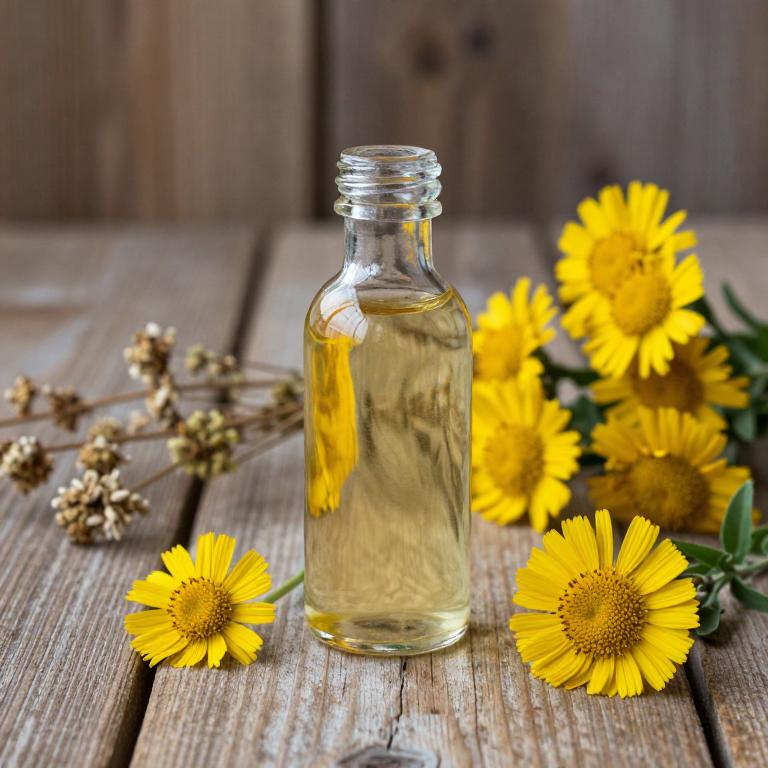
Agrimonia eupatoria herbal syrups are used to support digestive health and relieve gastrointestinal discomfort.
They contain tannins and flavonoids, which help soothe inflammation in the stomach and intestines. This herbal syrup is often recommended for conditions like indigestion, diarrhea, and irritable bowel syndrome. Its astringent properties aid in reducing excess mucus and promoting a healthy gut environment.
Due to its natural composition, agrimonia eupatoria syrups are considered a gentle and effective alternative to conventional medications for digestive issues.
55. European plum (Prunus domestica)
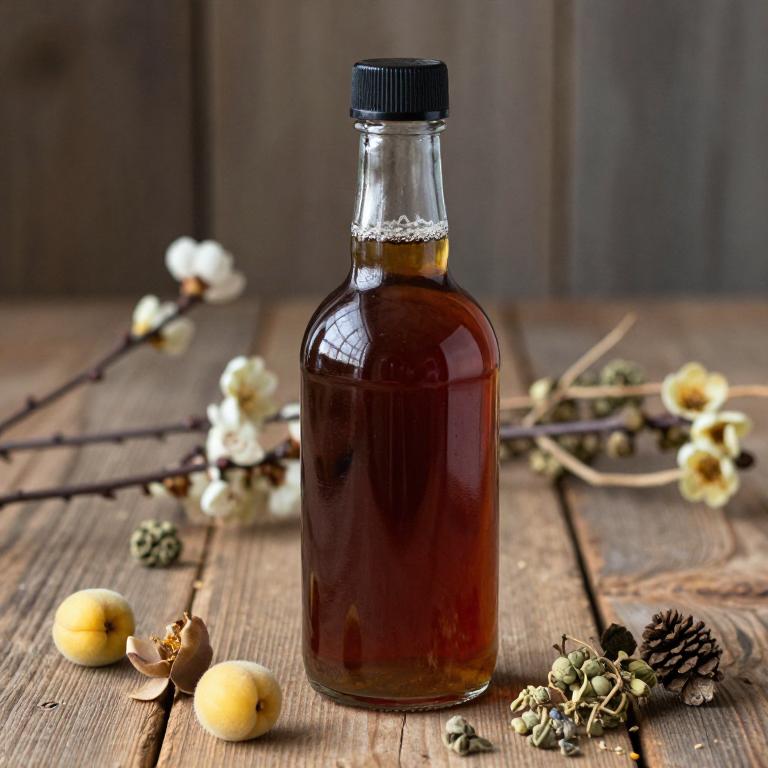
Prunus domestica herbal syrups are used to support digestive health by aiding in the relief of symptoms such as bloating, gas, and indigestion.
These syrups contain compounds that can help soothe the gastrointestinal tract and promote regular bowel movements. They are also valued for their potential to reduce inflammation and support the immune system due to the presence of antioxidants and other bioactive compounds. Additionally, prunus domestica syrups are often used to alleviate mild symptoms of irritable bowel syndrome (IBS) and other digestive disorders.
Their natural, plant-based formulation makes them a popular choice for those seeking gentle, holistic approaches to digestive wellness.
56. Bacopa (Bacopa monnieri)
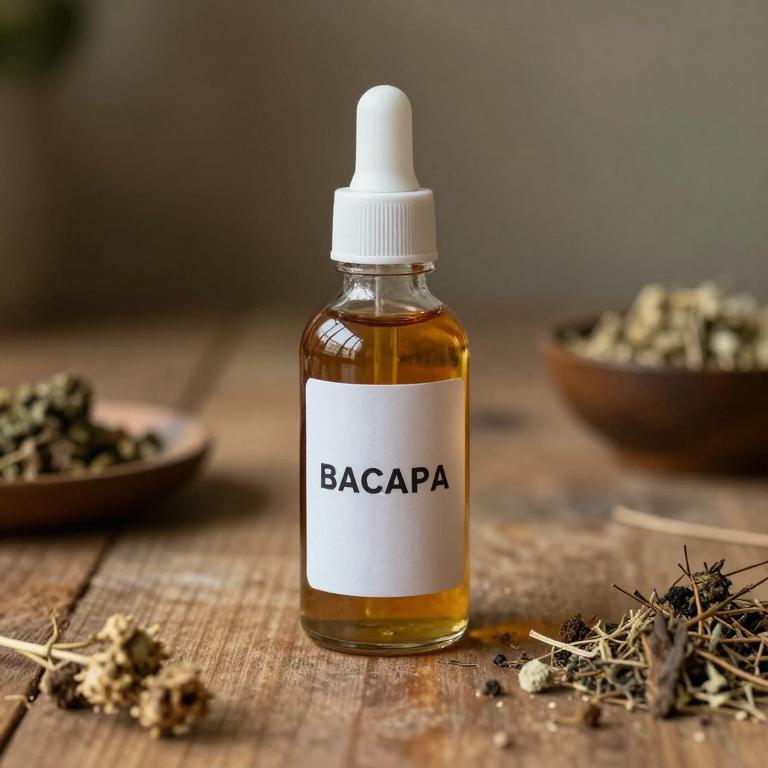
Bacopa monnieri herbal syrups are used to enhance cognitive function and memory retention, making them popular among students and professionals seeking mental clarity.
These syrups are believed to support the nervous system by promoting the growth of nerve cells and improving communication between them. They are also used to reduce anxiety and stress, offering a natural alternative for those dealing with mental health challenges. The active compounds in bacopa monnieri, such as bacosides, contribute to its adaptogenic properties, helping the body manage stress more effectively.
Due to these benefits, bacopa monnieri herbal syrups are increasingly incorporated into herbal remedies and dietary supplements for overall mental wellness.
57. Melaleuca (Melaleuca alternifolia)
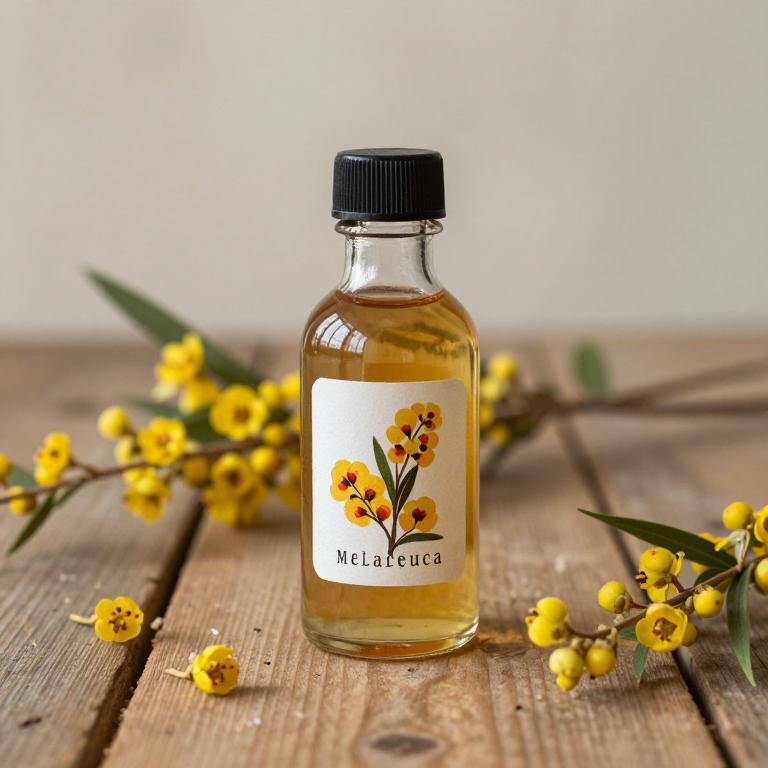
Melaleuca alternifolia herbal syrups are used to support respiratory health by helping to alleviate symptoms of coughs, colds, and sore throats due to their antimicrobial and anti-inflammatory properties.
These syrups are also commonly used to reduce congestion and ease breathing, making them a popular remedy for individuals suffering from bronchitis or other respiratory infections. The active compound, tea tree oil, is known for its ability to combat bacteria and viruses, which contributes to the effectiveness of these syrups in treating upper respiratory tract infections. Additionally, melaleuca alternifolia syrups are valued for their soothing effect on the throat, providing relief from irritation and discomfort.
Because of their natural origin and broad range of benefits, these syrups are often preferred as a complementary treatment in both home and alternative medicine practices.
58. Bloodroot (Sanguinaria canadensis)
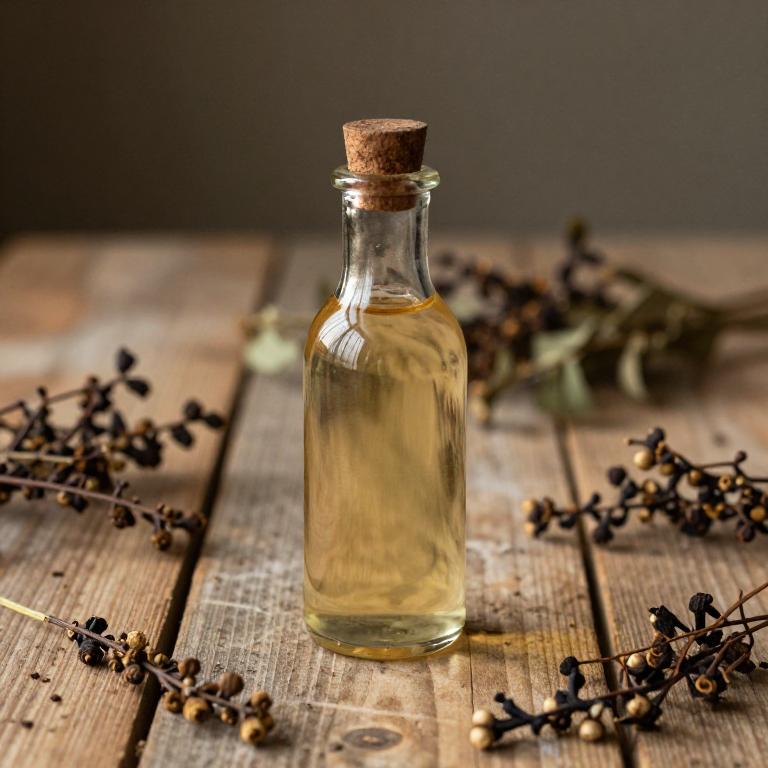
Sanguinaria canadensis herbal syrups are used to treat respiratory conditions such as coughs, bronchitis, and asthma due to their expectorant and antispasmodic properties.
These syrups help loosen mucus in the airways, making it easier to expel and reducing the frequency of coughing. The active compounds in the syrup, such as berberine and protoberberine, have been shown to possess antimicrobial and anti-inflammatory effects, which can help combat infections and soothe inflamed tissues. Additionally, the syrup may support overall respiratory health by improving lung function and reducing irritation.
Because of these benefits, sanguinaria canadensis herbal syrups are often recommended as a natural remedy for chronic or acute respiratory ailments.
59. Sutherlandia frutescens
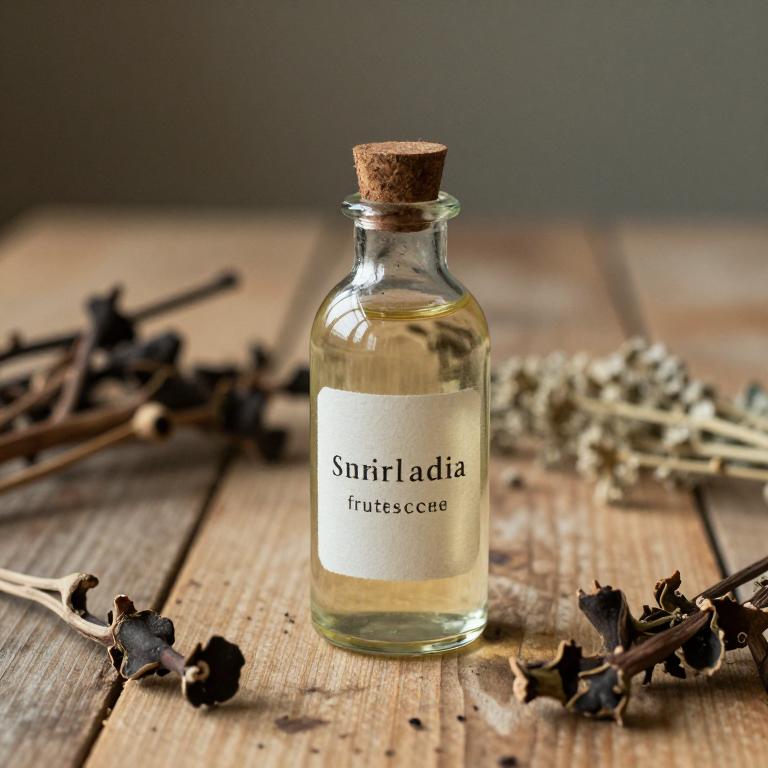
Sutherlandia frutescens herbal syrups are used to support immune function and enhance vitality in individuals experiencing fatigue or stress.
These syrups are often incorporated into traditional African medicine for their purported ability to strengthen the body's natural defenses and promote overall well-being. The active compounds in sutherlandia frutescens, such as lactones and alkaloids, are believed to contribute to its therapeutic effects. They are particularly favored by those seeking natural alternatives to conventional treatments for conditions like cancer or chronic illness.
Due to their mild flavor and ease of administration, these syrups are also popular for daily use in maintaining general health and resilience.
60. Wormwood (Artemisia vulgaris)
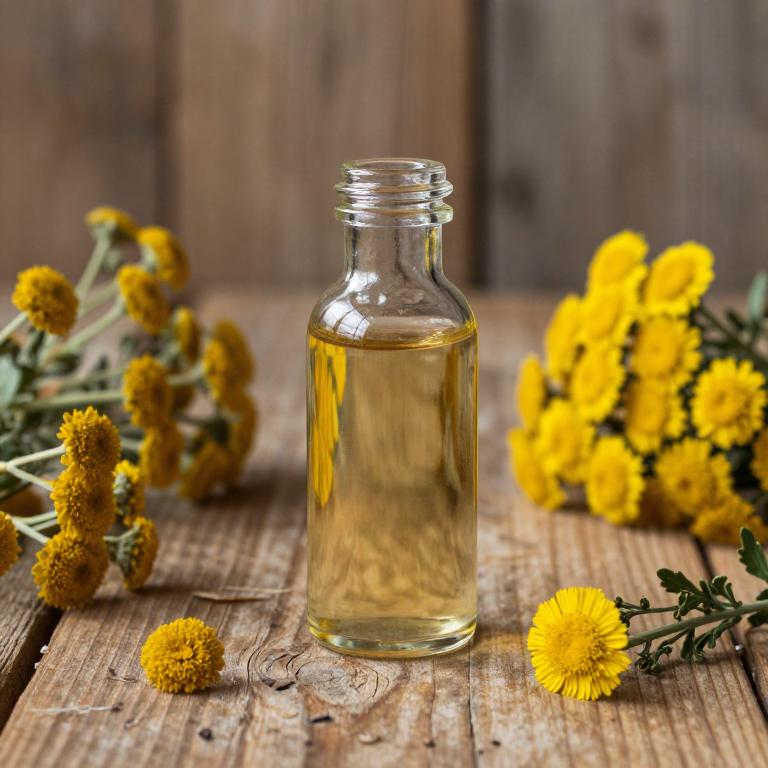
Artemisia vulgaris herbal syrups are used to support digestive health by stimulating appetite and aiding in the digestion of food.
They are also commonly used to alleviate symptoms of digestive disorders such as indigestion, bloating, and flatulence due to their mild carminative properties. The syrup's natural compounds may help soothe the gastrointestinal tract and promote a sense of well-being. Additionally, artemisia vulgaris is believed to have antimicrobial properties that can help in managing mild gastrointestinal infections.
Because of these benefits, it is often recommended as a natural remedy for those seeking alternative support for digestive wellness.
61. Plantain (Plantago lanceolata)
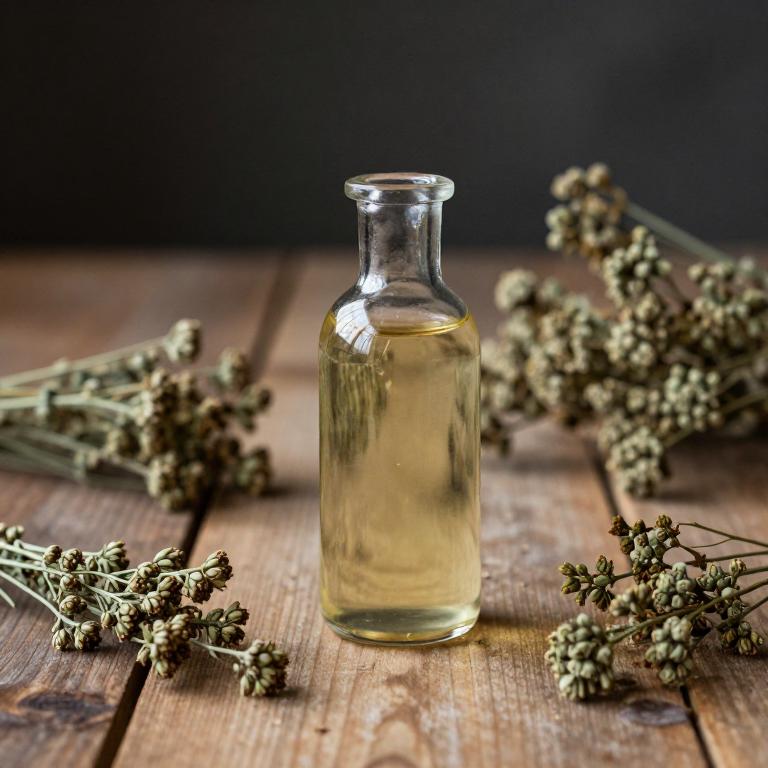
Plantago lanceolata herbal syrups are used to support respiratory health by alleviating symptoms of coughs, sore throats, and bronchitis due to their demulcent and anti-inflammatory properties.
These syrups help soothe irritated mucous membranes, making them beneficial for individuals suffering from persistent or chronic respiratory conditions. The mucilage present in Plantago lanceolata forms a protective layer over the throat and airways, reducing irritation and promoting healing. Additionally, the syrup's natural antioxidants may enhance immune function, aiding in the body's ability to combat infections.
Because of these therapeutic benefits, Plantago lanceolata herbal syrups are a popular choice in both traditional and modern herbal medicine for respiratory support.
62. Catnip (Nepeta cataria)
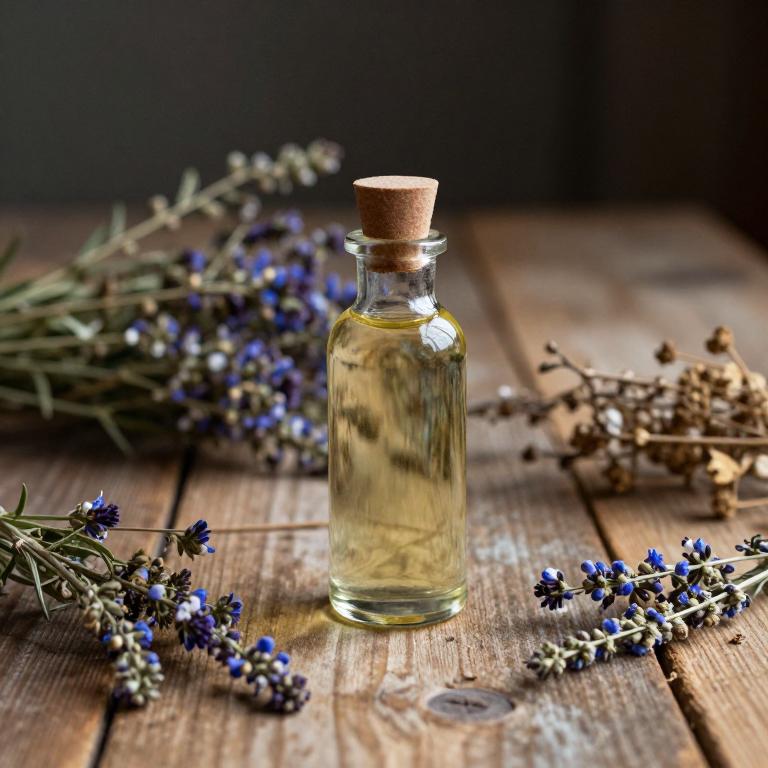
Nepeta cataria herbal syrups are used to soothe respiratory issues such as coughs and bronchitis due to their expectorant and antispasmodic properties.
The active compounds in nepeta cataria, such as nepetalactone, help loosen mucus and reduce inflammation in the airways, making it easier to breathe. These syrups are also valued for their calming effects, which can help alleviate symptoms of anxiety and stress-related respiratory problems. Their pleasant, catnip-like aroma further enhances their appeal as a natural remedy for both physical and emotional well-being.
Overall, nepeta cataria herbal syrups offer a gentle, effective alternative for those seeking natural relief from respiratory discomfort.
63. Sweet wormwood (Artemisia annua)
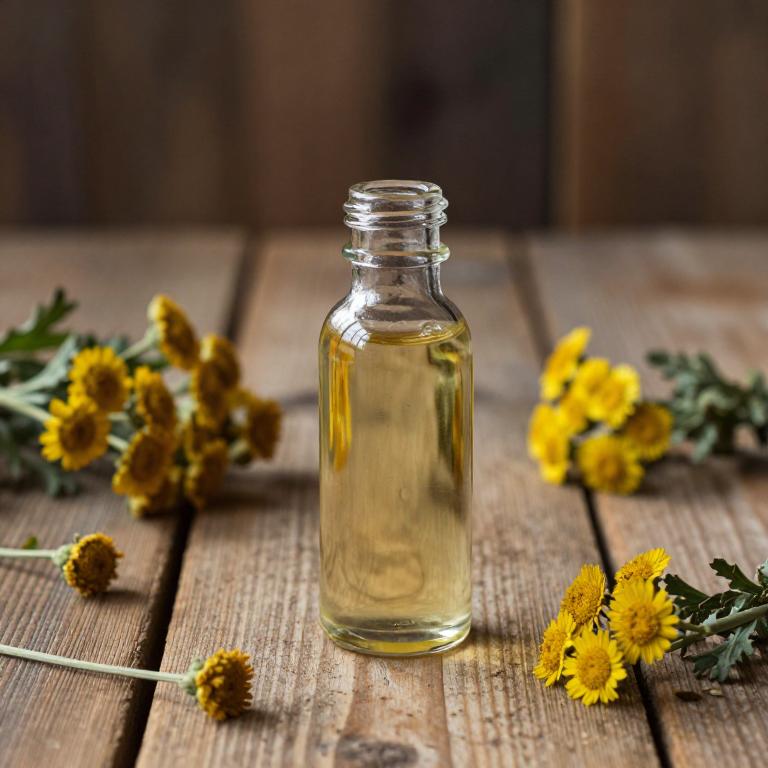
Artemisia annua herbal syrups are used to support the treatment of malaria due to their high concentration of artemisinin, a compound known for its potent antimalarial properties.
These syrups are often preferred in regions where access to modern antimalarial drugs is limited, offering a more affordable and accessible alternative. The herbal formulation is also believed to help alleviate symptoms such as fever, chills, and body aches associated with malaria infections. Additionally, artemisia annua syrups may have broader health benefits, including anti-inflammatory and immune-boosting effects, which can aid in overall wellness.
However, it is important to use these syrups under the guidance of a healthcare professional to ensure safety and effectiveness.
64. False leaf (Phyllanthus amarus)
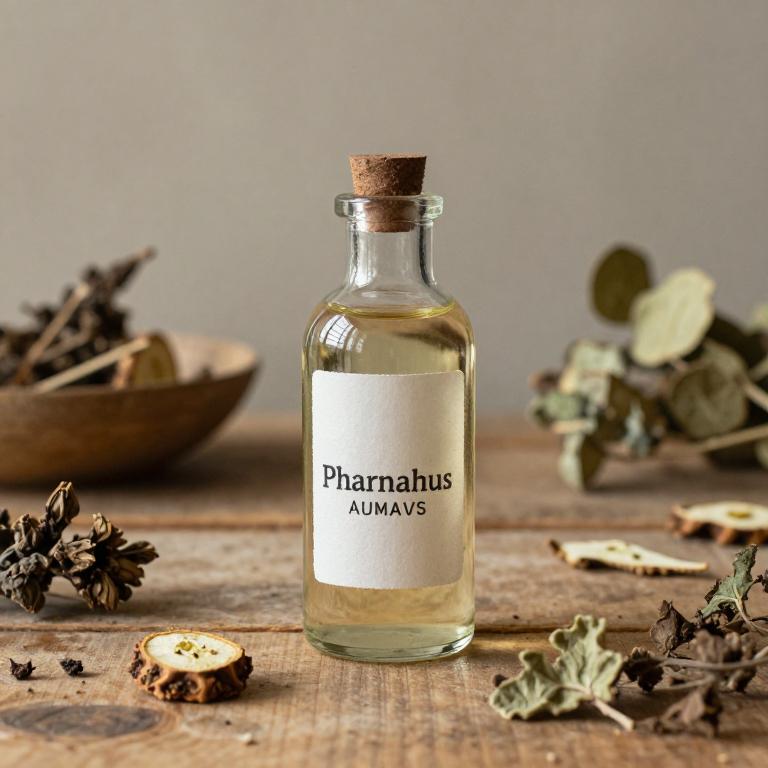
Phyllanthus amarus herbal syrups are used to support liver health and detoxification due to their high concentration of bioactive compounds.
These syrups are traditionally valued for their ability to enhance the body's natural detox processes and promote the regeneration of liver cells. They are also commonly used to alleviate symptoms of hepatitis and other liver-related conditions. The anti-inflammatory and antioxidant properties of phyllanthus amarus contribute to its effectiveness in reducing oxidative stress and improving overall metabolic function.
As a result, these syrups are increasingly sought after in both traditional and complementary medicine practices for their holistic health benefits.
65. Indian frankincense (Boswellia serrata)
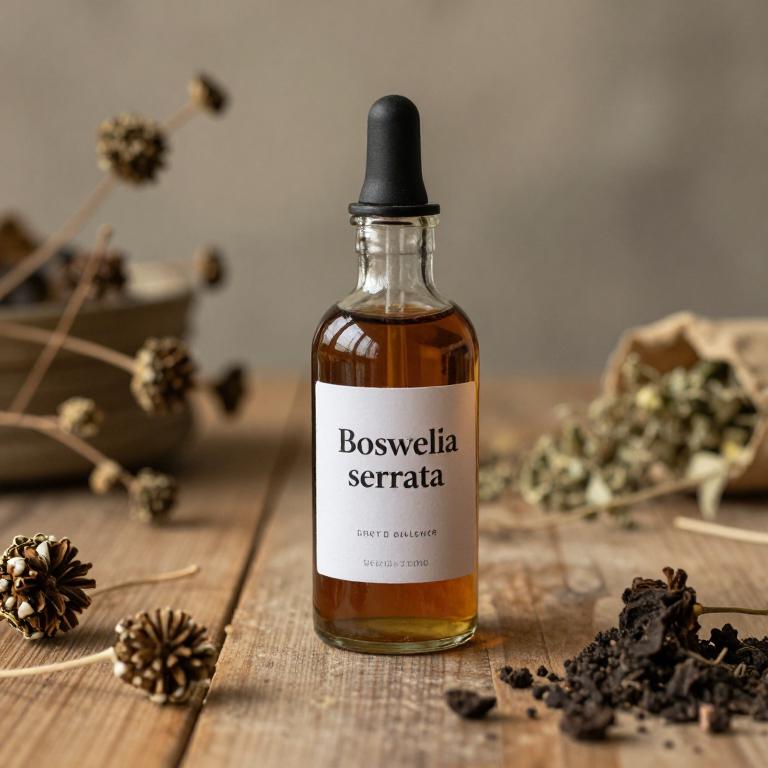
Boswellia serrata herbal syrups are used to support joint health and reduce inflammation, particularly in conditions like osteoarthritis.
These syrups contain active compounds called boswellic acids, which have potent anti-inflammatory properties. They are often recommended as a natural alternative to synthetic anti-inflammatory drugs due to their lower risk of side effects. The herbal syrup form makes it easier for individuals to consume, especially those who have difficulty swallowing pills.
Overall, boswellia serrata herbal syrups are valued for their ability to alleviate pain and improve mobility in people suffering from chronic inflammatory conditions.
66. Polium germander (Teucrium polium)
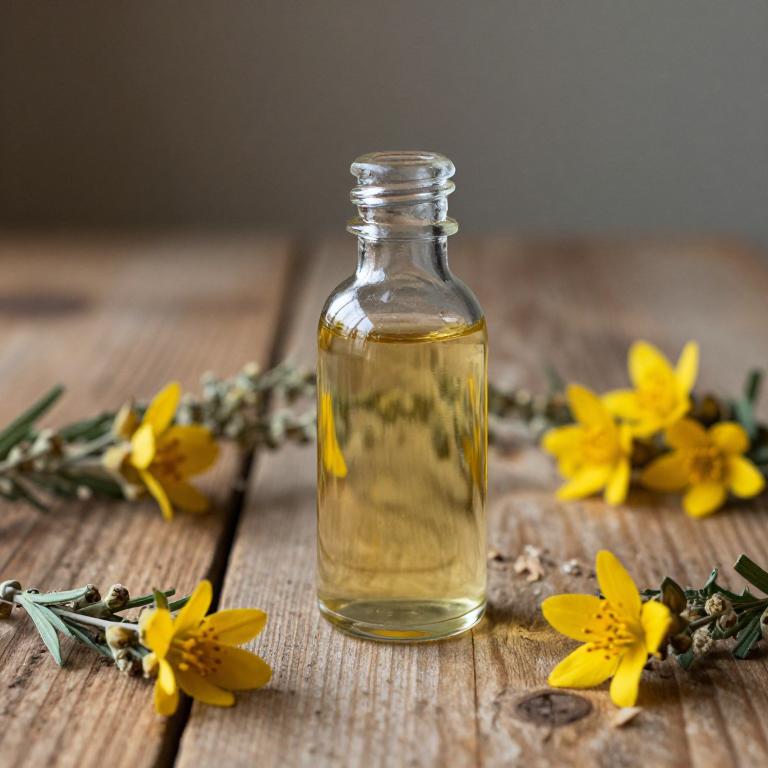
Teucrium polium herbal syrups are used to support respiratory health by alleviating symptoms of coughs, colds, and sore throats due to their expectorant and anti-inflammatory properties.
These syrups are also valued for their ability to soothe digestive discomfort, such as indigestion and gastritis, thanks to the plant's carminative effects. Additionally, they are often used to promote mental clarity and reduce stress, as the herb has mild calming properties that can aid in relaxation. The natural formulation of teucrium polium syrups makes them a safe option for long-term use, particularly for those seeking alternative remedies.
Overall, their versatility in addressing both respiratory and digestive issues, along with their soothing and calming effects, makes them a popular choice in herbal medicine.
67. Common plantain (Plantago major)
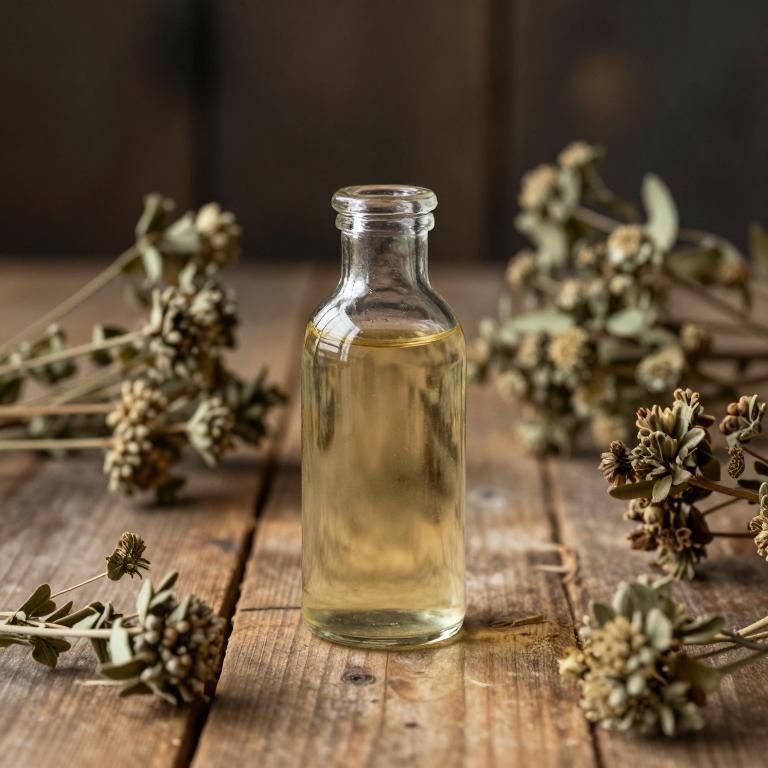
Plantago major herbal syrups are used to soothe respiratory and digestive discomfort due to their natural anti-inflammatory and demulcent properties.
These syrups are commonly employed to alleviate symptoms of coughs, sore throats, and mild digestive issues like indigestion or gastritis. The mucilage found in Plantago major helps coat and protect irritated tissues in the throat and stomach, providing a calming effect. Additionally, they are often used as a natural remedy to support overall respiratory health and reduce inflammation in the airways.
Their gentle nature makes them a preferred choice for individuals seeking herbal alternatives to conventional medications.
68. Poison ivy (Rhus toxicodendron)
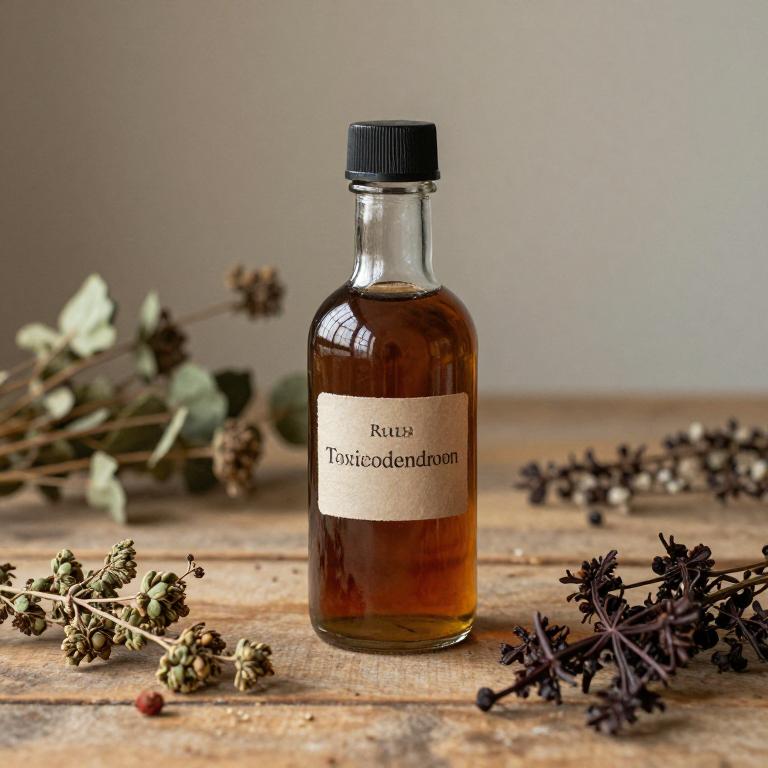
Rhus toxicodendron herbal syrups are used to alleviate symptoms of skin conditions such as eczema, psoriasis, and dermatitis by reducing inflammation and itching.
These syrups are particularly effective for individuals experiencing intense skin irritation, redness, and dryness, as they help to soothe the affected areas and promote healing. The active compounds in Rhus toxicodendron, such as tannins and flavonoids, have anti-inflammatory and astringent properties that contribute to their therapeutic effects. They are often recommended in alternative medicine practices for their natural and holistic approach to treating skin disorders.
Due to their calming and healing properties, these syrups are a popular choice for those seeking non-pharmacological remedies for chronic skin issues.
69. Common hawthorn (Crataegus oxyacantha)
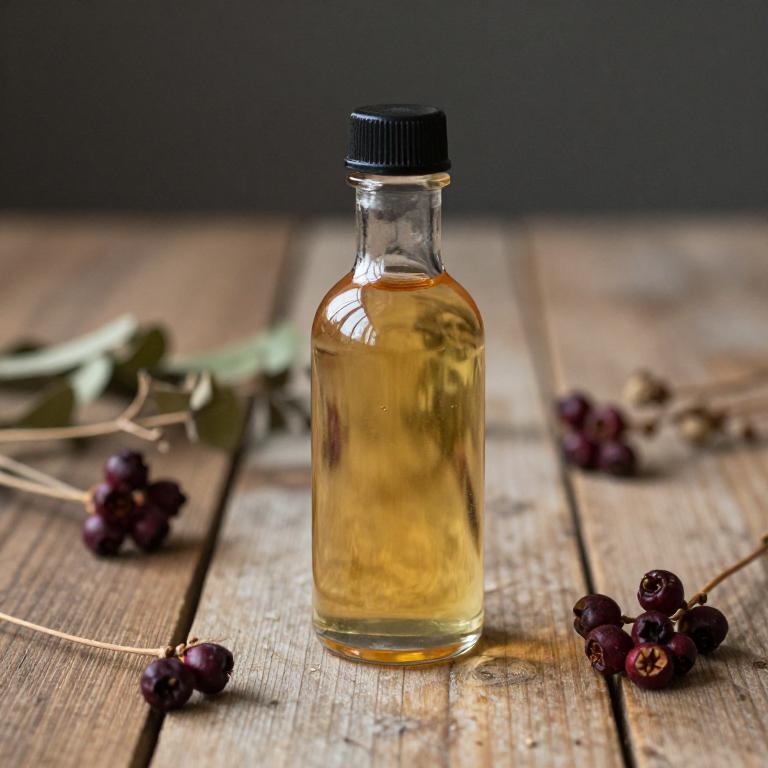
Crataegus oxyacantha herbal syrups are used to support cardiovascular health by promoting healthy blood flow and reducing the workload on the heart.
These syrups are commonly recommended for individuals experiencing mild to moderate symptoms of heart failure, as they may help improve cardiac function and reduce fluid retention. The active compounds in the syrup, such as flavonoids and triterpenes, are believed to have antioxidant and anti-inflammatory properties that contribute to its therapeutic effects. Additionally, crataegus oxyacantha syrups are sometimes used to alleviate symptoms of anxiety and insomnia due to their calming influence on the nervous system.
Overall, these herbal syrups are valued for their potential to enhance heart health and support overall well-being when used as part of a holistic treatment approach.
70. Velvet bean (Mucuna pruriens)
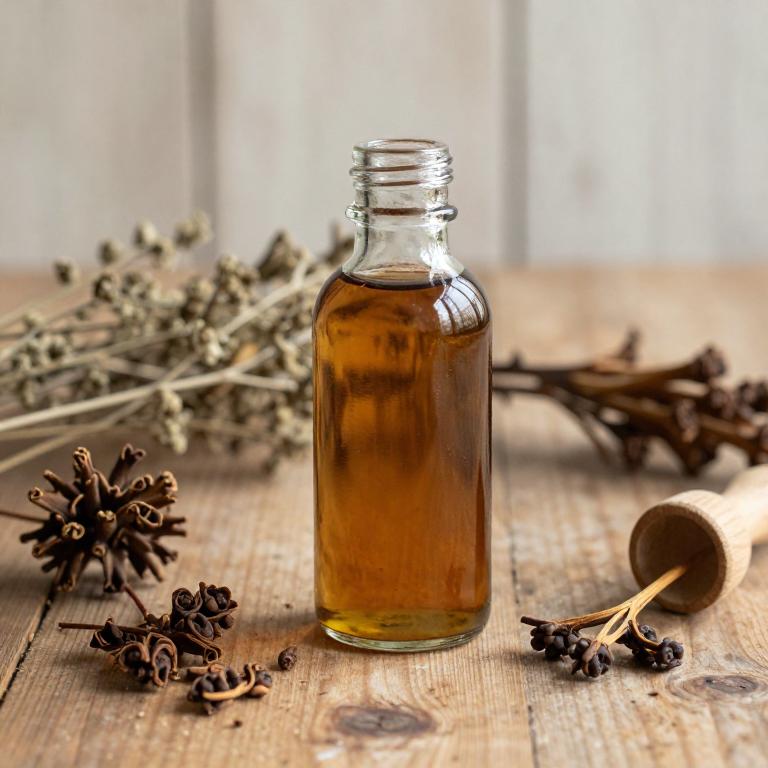
Mucuna pruriens herbal syrups are used to enhance libido and sexual vitality in both men and women due to their high concentration of L-dopa, a precursor to dopamine, which supports mood and desire.
These syrups are also utilized to improve fertility by boosting testosterone levels and supporting reproductive health. Additionally, they are valued for their potential to alleviate symptoms of depression and anxiety by promoting the production of neurotransmitters like serotonin and dopamine. The natural formulation of mucuna pruriens syrups makes them a popular choice for those seeking holistic approaches to wellness.
Overall, their versatility in addressing both physical and mental well-being contributes to their widespread use in traditional and modern herbal medicine.
71. Maca (Lepidium meyenii)
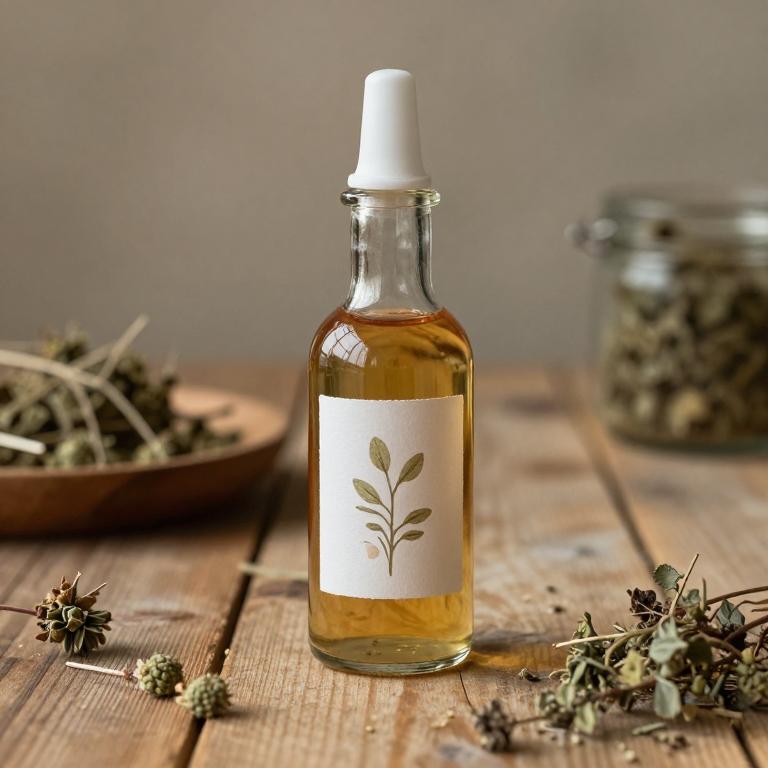
Lepidium meyenii herbal syrups are used to support digestive health and enhance nutrient absorption due to their rich content of essential nutrients and bioactive compounds.
These syrups are particularly valued for their potential to alleviate symptoms of indigestion, bloating, and irregular bowel movements. The natural compounds in lepidium meyenii, such as vitamins, minerals, and phytochemicals, contribute to the overall strengthening of the immune system. They are also believed to aid in detoxification processes and promote a balanced gut microbiome.
Because of these benefits, lepidium meyenii herbal syrups are increasingly popular as a natural supplement for holistic wellness.
72. Barrenwort (Epimedium grandiflorum)
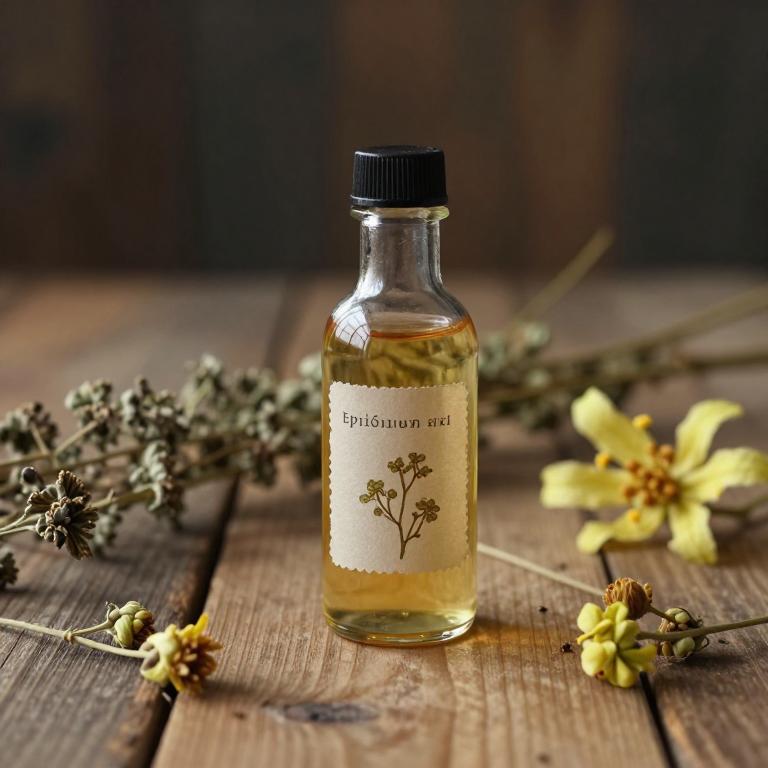
Epimedium grandiflorum herbal syrups are used to enhance vitality and support sexual health due to their traditional medicinal properties.
These syrups are believed to improve circulation and increase energy levels, making them popular in herbal medicine for their purported aphrodisiac effects. They are often recommended for individuals experiencing fatigue, low libido, or general weakness. The active compounds in the syrup may help stimulate the nervous system and promote overall well-being.
As a result, epimedium grandiflorum herbal syrups are valued for their potential to restore balance and vitality in the body.
73. Tongkat ali (Eurycoma longifolia)

Eurycoma longifolia herbal syrups are used to support immune function and enhance vitality due to their rich content of bioactive compounds such as quassinoids and alkaloids.
These syrups are commonly consumed to boost energy levels and improve overall physical endurance, making them popular among individuals seeking natural health supplements. They are also valued for their potential anti-inflammatory and antioxidant properties, which may contribute to skin health and cellular repair. In traditional medicine, eurycoma longifolia has been used to address fatigue and stress, aligning with its reputation as a natural stimulant.
Overall, the combination of these health benefits makes eurycoma longifolia herbal syrups a sought-after remedy for promoting wellness and resilience.
74. Caraway (Carum carvi)
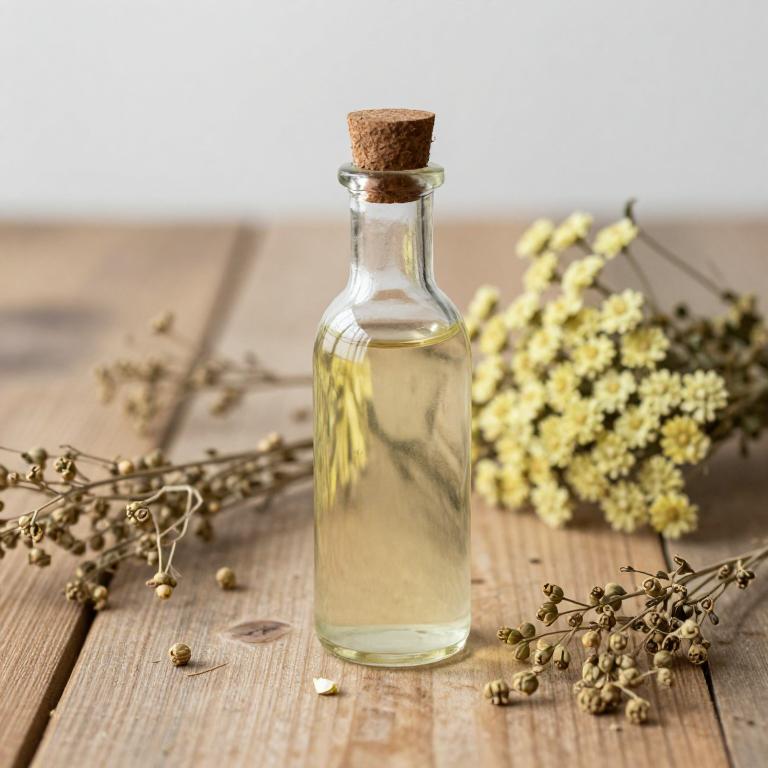
Carum carvi herbal syrups are used to support respiratory health by alleviating symptoms of coughs, colds, and bronchitis due to their expectorant and anti-inflammatory properties.
The active compounds in caraway seeds, such as apiol and limonene, help loosen mucus and reduce irritation in the throat and airways. These syrups are also valued for their soothing effect on the digestive system, making them useful in treating indigestion and bloating. Their mild and pleasant taste makes them suitable for children and adults alike, enhancing their appeal as a natural remedy.
Overall, carum carvi herbal syrups offer a safe and effective way to address common ailments with a holistic approach.
75. Marshmallow (Althaea officinalis)
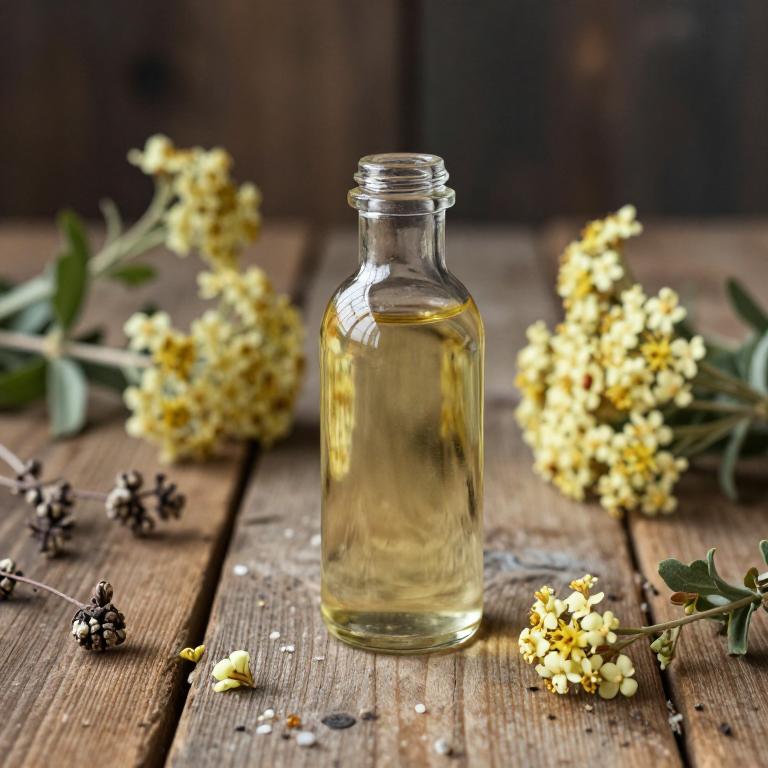
Althaea officinalis herbal syrups are used to soothe respiratory conditions such as coughs, sore throats, and bronchitis due to their mucilage content, which coats and protects the mucous membranes.
The syrup's demulcent properties help reduce irritation and inflammation in the throat, making it a popular remedy for dry or productive coughs. It is also valued for its mild laxative effect, aiding in the relief of constipation by softening stools and promoting bowel movements. Additionally, althaea officinalis is believed to support immune function and may help alleviate symptoms of colds and flu.
These benefits make althaea officinalis herbal syrups a versatile and traditional choice in herbal medicine.
76. Tree peony (Paeonia suffruticosa)
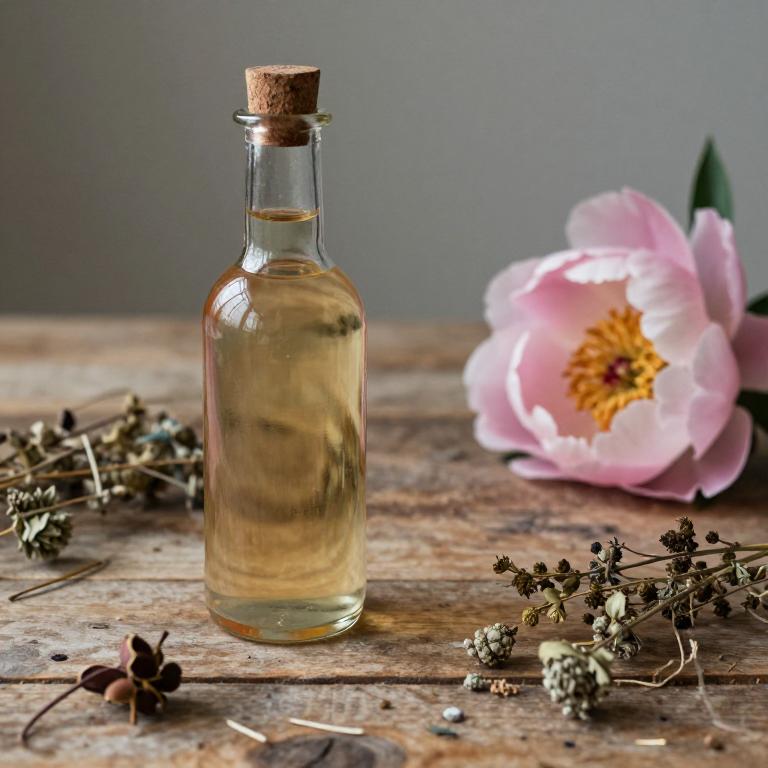
Paeonia suffruticosa herbal syrups are used to support respiratory health by alleviating symptoms of coughs and bronchitis due to their expectorant properties.
These syrups help to loosen mucus and reduce inflammation in the airways, making them beneficial for individuals suffering from chronic or acute respiratory conditions. Additionally, they are valued for their calming effects, which can aid in reducing stress and promoting better sleep. The natural compounds in paeonia suffruticosa also have antioxidant properties that contribute to overall immune support.
Because of these therapeutic benefits, paeonia suffruticosa herbal syrups are increasingly popular in traditional and modern herbal medicine practices.
77. Sacred lotus (Nelumbo nucifera)
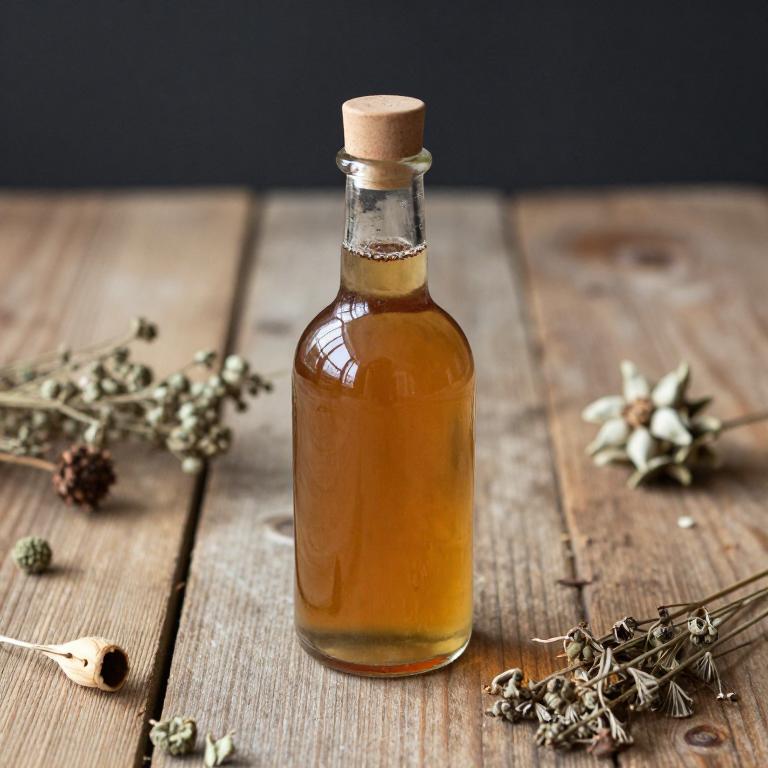
Nelumbo nucifera herbal syrups are used to support respiratory health by alleviating symptoms of coughs, colds, and bronchitis due to their expectorant and anti-inflammatory properties.
These syrups are also valued for their ability to soothe sore throats and reduce irritation, making them a popular choice for natural remedies in traditional medicine. The presence of bioactive compounds like alkaloids and flavonoids contributes to their efficacy in boosting the immune system and reducing mucus production. Additionally, they are often used to promote mental clarity and calmness, thanks to their calming effects on the nervous system.
Overall, nelumbo nucifera herbal syrups are favored for their multifaceted benefits in supporting both physical and mental well-being.
78. Goatweed (Eclipta prostrata)
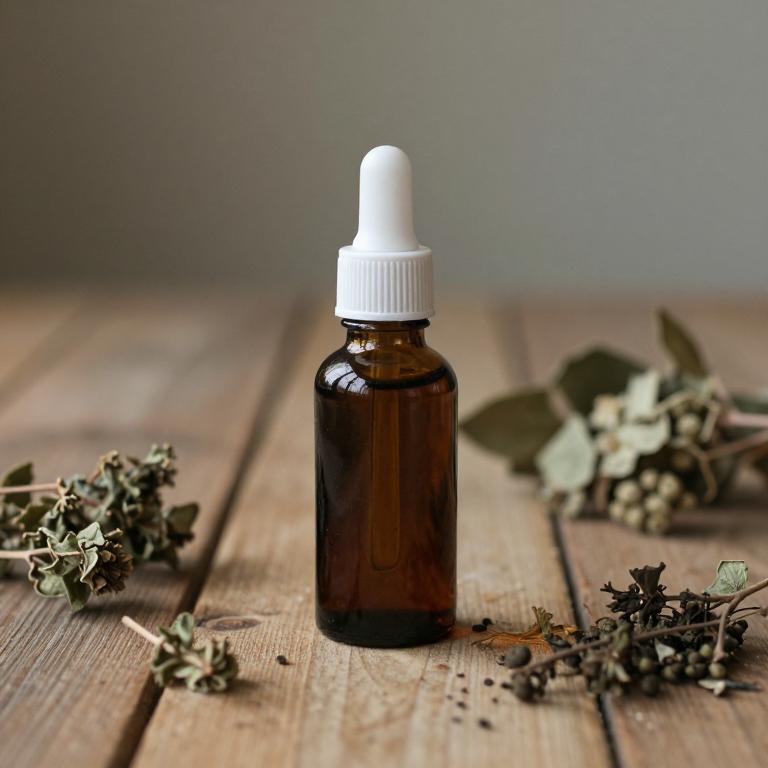
Eclipta prostrata herbal syrups are used to support liver health and promote detoxification by aiding in the removal of toxins from the body.
These syrups are also known to enhance the production of red blood cells, making them beneficial for individuals suffering from anemia. Additionally, they are commonly used to improve hair growth and strengthen hair follicles, leading to healthier and more lustrous hair. The anti-inflammatory and antioxidant properties of eclipta prostrata make it effective in reducing inflammation and supporting overall immune function.
Due to these multiple benefits, eclipta prostrata herbal syrups are widely utilized in traditional medicine for their holistic healing properties.
79. Lemon grass (Cymbopogon citratus)
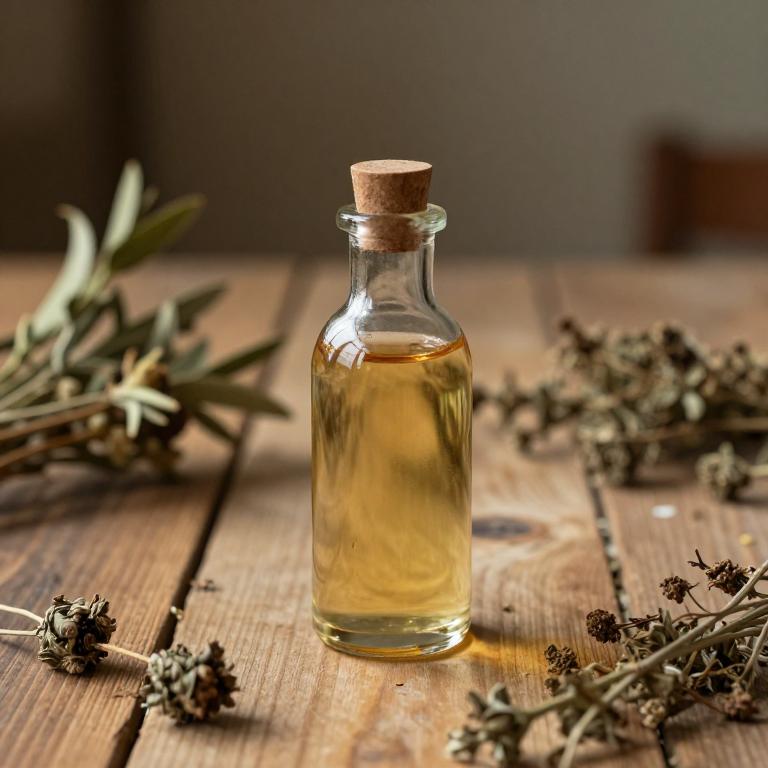
Cymbopogon citratus herbal syrups are used to support respiratory health by alleviating symptoms of coughs and congestion due to their expectorant properties.
These syrups are also valued for their calming effects, making them useful in reducing stress and promoting relaxation. The natural essential oils in cymbopogon citratus contribute to their antiseptic and anti-inflammatory qualities, which can help soothe sore throats and reduce inflammation in the respiratory tract. Additionally, these syrups are often used in aromatherapy and as a natural remedy for digestive issues such as nausea and indigestion.
Their pleasant citrus aroma enhances the sensory experience, making them a popular choice for both therapeutic and everyday wellness applications.
80. Wormwood (Artemisia absinthium)
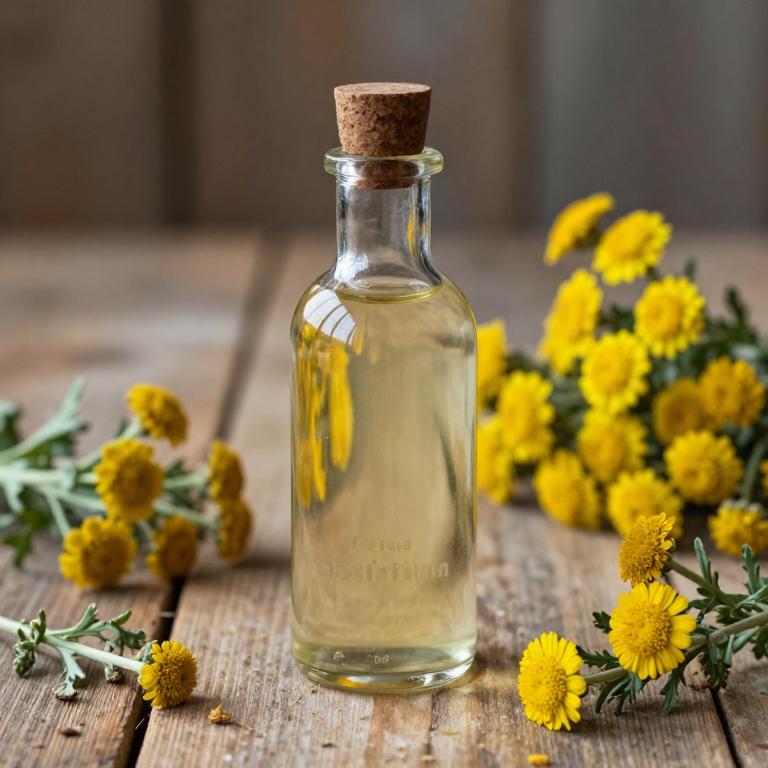
Artemisia absinthium herbal syrups are used to support digestive health by stimulating bile production and aiding in the digestion of fats.
These syrups are also valued for their potential to alleviate symptoms of digestive disorders such as bloating and indigestion. The herb's bitter compounds can help improve appetite and promote a healthy gut environment. Additionally, artemisia absinthium may have antimicrobial properties that contribute to overall gut wellness.
Due to these benefits, it is often recommended as a natural remedy for those seeking to enhance their digestive function.
81. Dandelion (Taraxacum officinale)
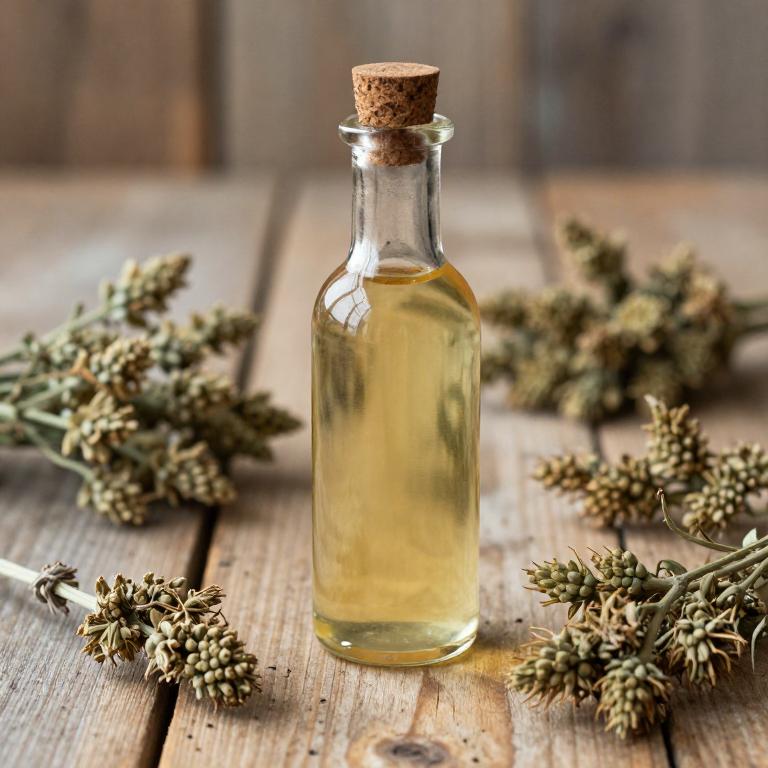
Taraxacum officinale herbal syrups are used to support digestive health and promote detoxification due to their natural compounds like inulin and bitter acids.
These syrups aid in improving appetite and relieving digestive issues such as bloating and indigestion. They are also believed to help flush toxins from the body, supporting liver and kidney function. The mild, slightly bitter taste makes them a popular choice for those seeking natural remedies for mild gastrointestinal discomfort.
Overall, their use is rooted in traditional medicine and modern herbal practices for overall wellness.
82. Geranium (Pelargonium graveolens)
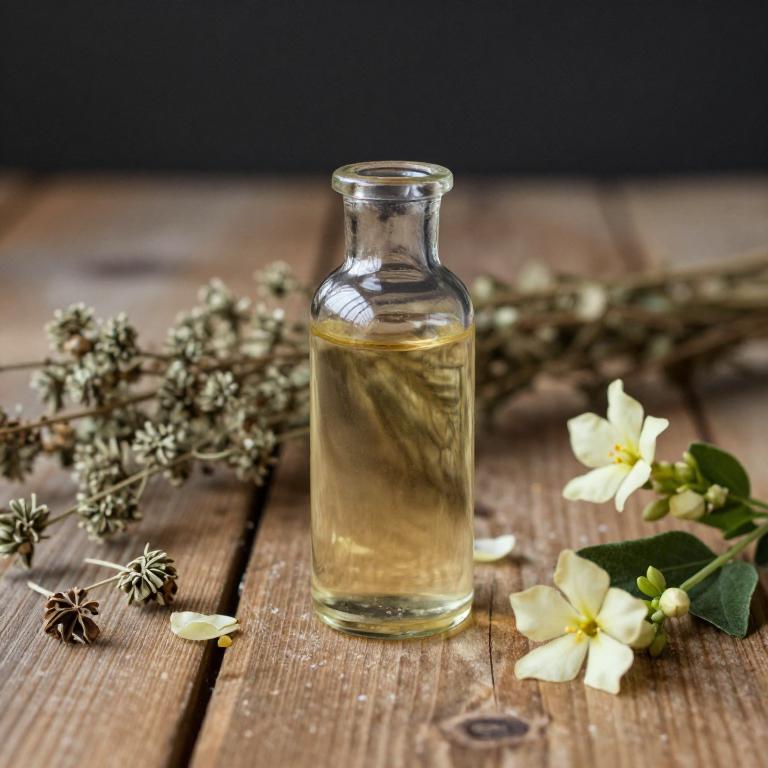
Pelargonium graveolens herbal syrups are used to support respiratory health by alleviating symptoms of coughs, colds, and bronchitis due to their expectorant and antispasmodic properties.
These syrups help loosen mucus in the airways, making it easier to expel and reducing congestion. The essential oils derived from the plant contain compounds like cineole and limonene, which have antimicrobial and anti-inflammatory effects. As a natural remedy, they are often preferred for their mild side effect profile compared to synthetic medications.
Their soothing aroma also provides a calming effect, making them suitable for use in children and adults alike.
83. Nux vomica (Strychnos nux-vomica)
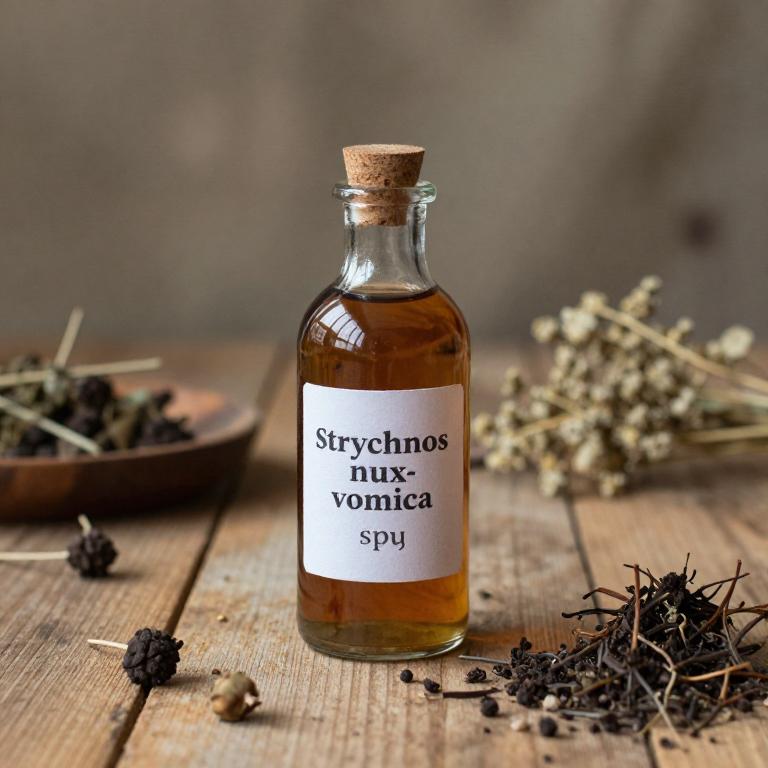
Strychnos nux-vomica herbal syrups are used to treat various ailments related to the nervous system, particularly in traditional Chinese medicine.
They are believed to help alleviate symptoms of conditions such as paralysis, muscle spasms, and neuralgia by stimulating nerve function and improving circulation. These syrups are also used to address digestive issues like indigestion and constipation due to their purported ability to enhance gastrointestinal motility. However, it is important to note that strychnos nux-vomica contains toxic alkaloids, making it a potent and potentially dangerous remedy that should only be used under strict medical supervision.
Despite their traditional use, modern pharmacological research continues to explore their safety and efficacy for specific therapeutic applications.
84. Pygeum (Pygeum africanum)
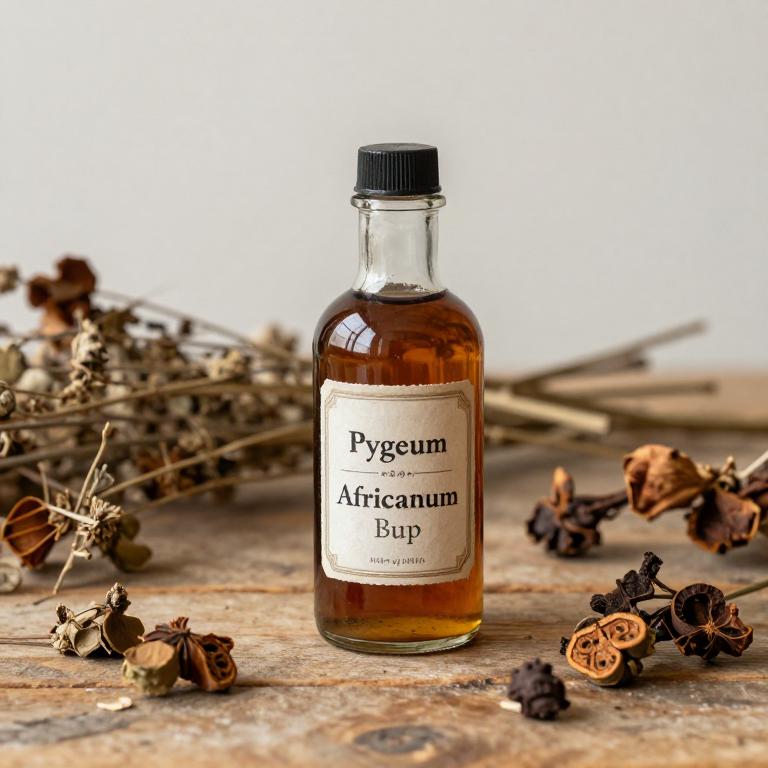
Pygeum africanum herbal syrups are used to support prostate health and alleviate symptoms associated with benign prostatic hyperplasia (BPH).
These syrups contain extracts from the bark of the pygeum tree, which has been traditionally used in African medicine for its anti-inflammatory and antioxidant properties. The active compounds in pygeum africanum may help reduce inflammation and improve urinary flow, making them beneficial for men experiencing prostate-related discomfort. Due to their natural composition, these syrups are often preferred by individuals seeking alternative or complementary therapies.
Their effectiveness and safety profile make them a popular choice for managing prostate health in a holistic manner.
85. Horse radish (Cnidium monnieri)
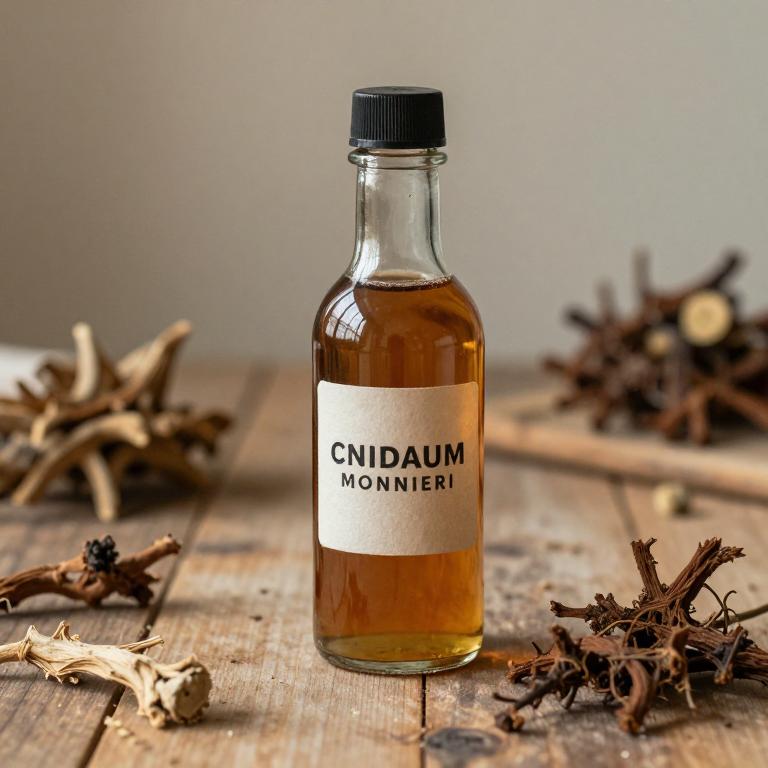
Cnidium monnieri herbal syrups are used to support kidney health and promote urinary function due to their diuretic properties.
These syrups are often recommended for individuals experiencing urinary retention or frequent urination, as they help in maintaining a healthy urinary tract. The active compounds in cnidium monnieri, such as alkaloids and flavonoids, are believed to enhance renal function and reduce inflammation. Additionally, they may aid in detoxification by supporting the body's natural elimination processes.
Because of these benefits, cnidium monnieri herbal syrups are increasingly popular in traditional and complementary medicine for their holistic approach to health.
86. Chinese peony (Paeonia lactiflora)
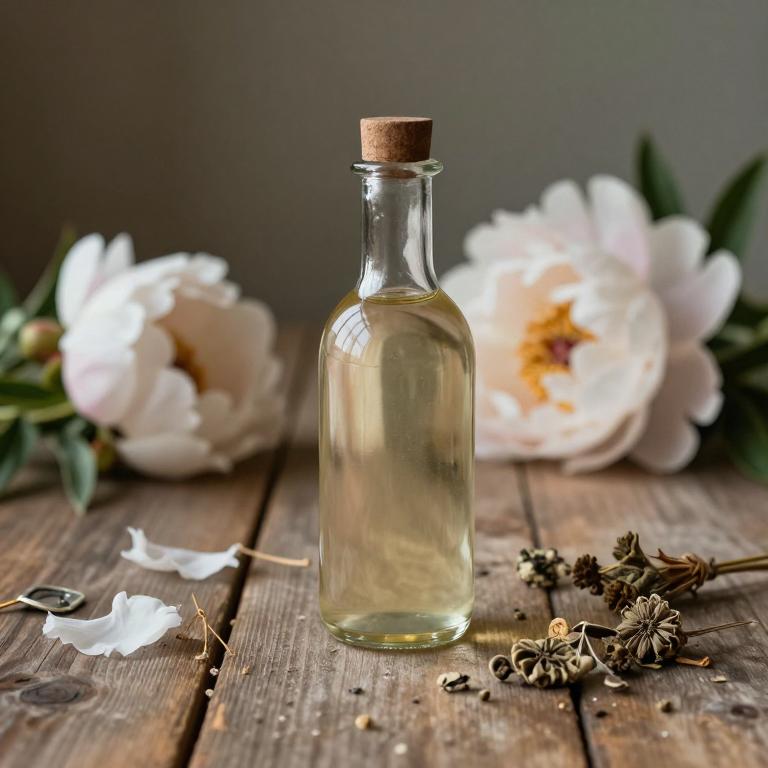
Paeonia lactiflora herbal syrups are used to support respiratory health by alleviating symptoms of coughs and bronchitis due to their expectorant properties.
These syrups are also valued for their calming effects, making them useful in reducing anxiety and promoting relaxation. The presence of bioactive compounds like flavonoids and alkaloids contributes to their anti-inflammatory and antioxidant benefits. They are often incorporated into traditional medicine practices for their ability to soothe sore throats and ease congestion.
Overall, paeonia lactiflora herbal syrups are a versatile remedy that addresses both physical and emotional well-being.
87. White cedar (Thuja occidentalis)
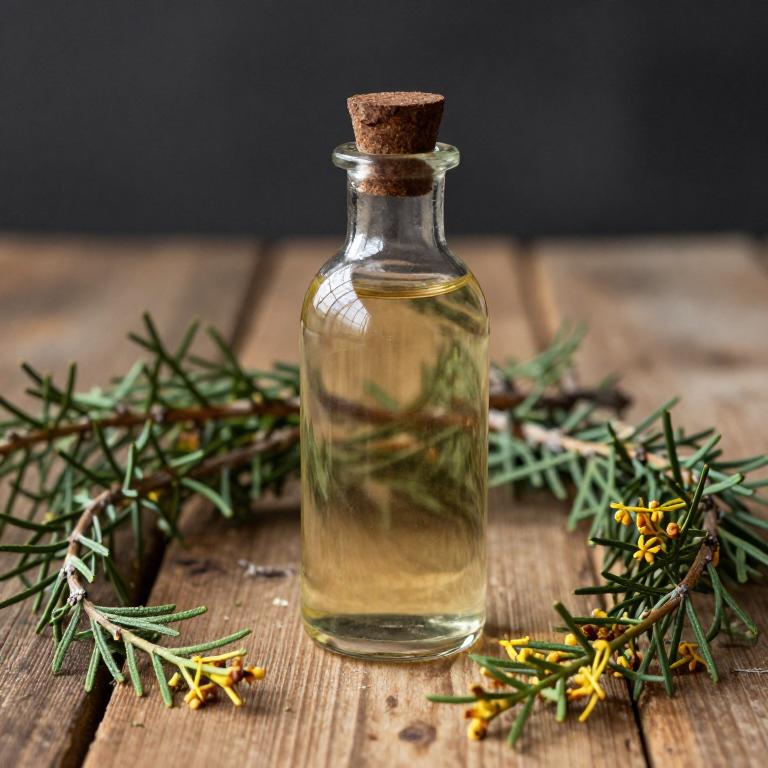
Thuja occidentalis herbal syrups are used to support respiratory health by helping to alleviate symptoms of colds, coughs, and bronchitis due to their antimicrobial and expectorant properties.
These syrups are also commonly used to promote skin health, as they may help reduce inflammation and support the healing of minor skin irritations. Additionally, thuja occidentalis is believed to have detoxifying effects, aiding in the removal of toxins from the body and supporting overall immune function. The essential oils in the syrup are often used topically to relieve symptoms of fungal infections, such as athlete's foot or ringworm.
Because of these potential benefits, thuja occidentalis herbal syrups are often sought after for their natural approach to supporting various health concerns.
88. Euphrasia (Euphrasia officinalis)
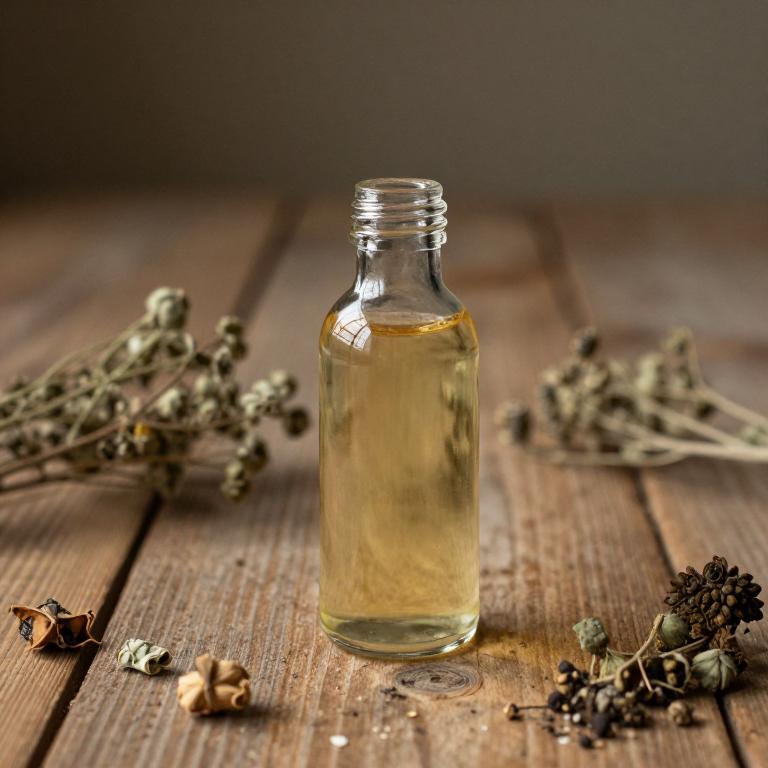
Euphrasia officinalis herbal syrups are used to soothe sore throats and alleviate symptoms of eye irritation due to their anti-inflammatory and astringent properties.
These syrups are often recommended for individuals suffering from colds, flu, or other respiratory infections because they can help reduce mucus production and ease coughing. The herb is also believed to support the immune system, making it a popular choice for boosting overall wellness during seasonal changes. Its mild and pleasant taste makes it suitable for children and adults alike, enhancing its accessibility and ease of use.
Due to its natural composition and historical use in traditional medicine, euphrasia officinalis syrups remain a trusted remedy for minor health ailments.
89. Greek oregano (Satureja hortensis)
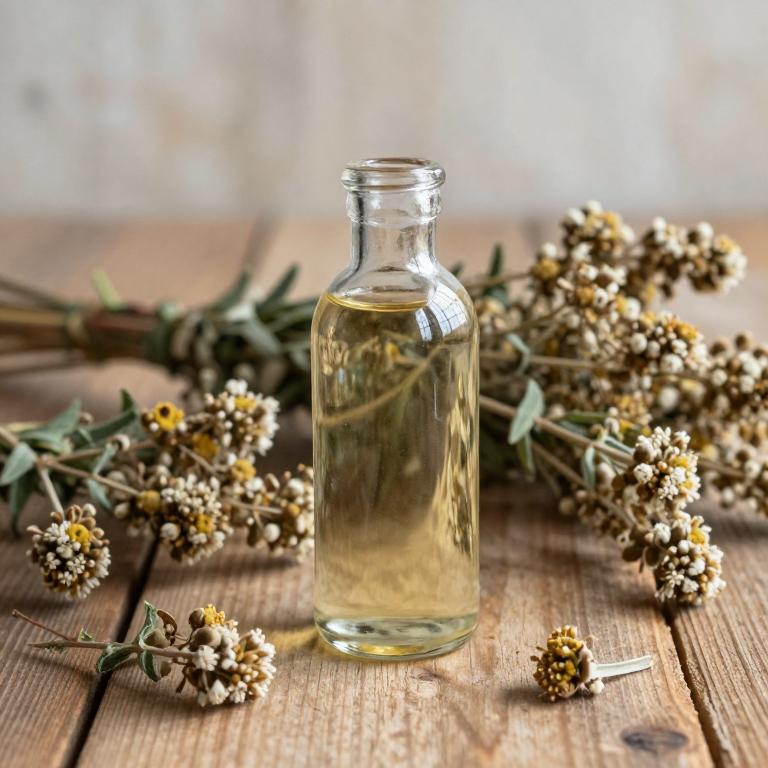
Satureja hortensis herbal syrups are used to support respiratory health by helping to relieve symptoms of coughs and colds due to their antiseptic and anti-inflammatory properties.
These syrups are also valued for their ability to soothe sore throats and reduce mucus production, making them a popular remedy during seasonal changes. The natural compounds in satureja hortensis, such as thymol and carvacrol, contribute to its effectiveness in fighting respiratory infections. Additionally, the pleasant aroma of the syrup can have a calming effect, promoting overall well-being.
Because of these benefits, satureja hortensis herbal syrups are increasingly favored as a natural alternative to conventional remedies for minor respiratory ailments.
90. Hops (Humulus lupulus)
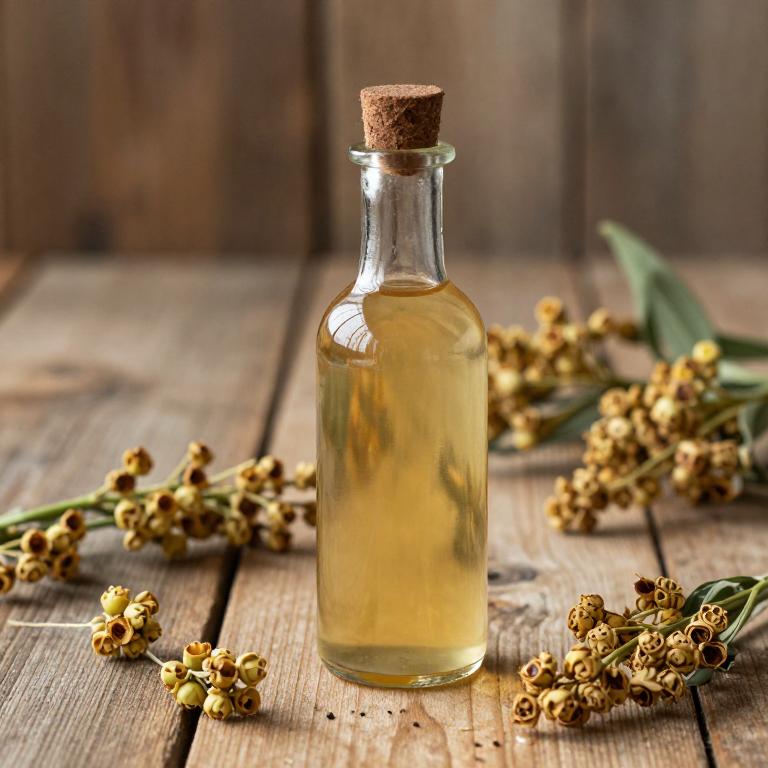
Humulus lupulus herbal syrups are used to support digestive health and alleviate mild gastrointestinal discomfort.
They contain compounds like humulone and lupulins, which have antimicrobial and anti-inflammatory properties that may help soothe the digestive tract. These syrups are often recommended for individuals experiencing bloating, indigestion, or irritable bowel syndrome due to their calming effects on the gut. The bitterness of the herb is balanced in the syrup, making it more palatable while retaining its therapeutic benefits.
Overall, humulus lupulus herbal syrups offer a natural alternative for promoting digestive wellness and comfort.
91. Peperomia plant (Peperomia pellucida)
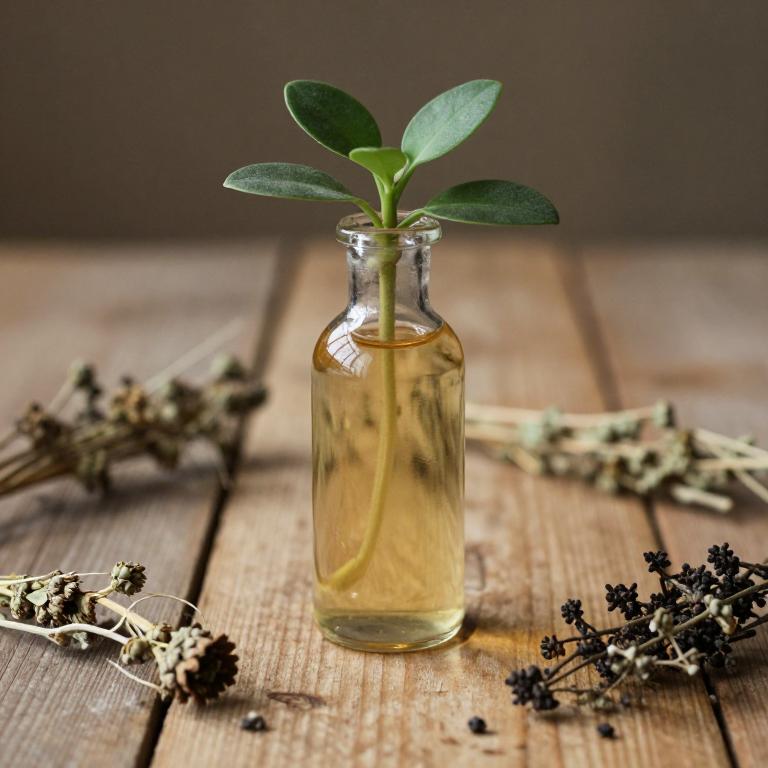
Peperomia pellucida herbal syrups are used to support respiratory health by alleviating symptoms of coughs and colds due to their expectorant and anti-inflammatory properties.
These syrups help loosen mucus in the airways, making it easier to expel and reducing congestion, which is particularly beneficial for individuals suffering from bronchitis or asthma. The natural compounds in the syrup, such as flavonoids and essential oils, also contribute to soothing irritated throats and reducing inflammation in the respiratory tract. Additionally, the syrup is often recommended for its calming effects, which can aid in relieving stress-related respiratory issues.
Overall, its traditional use in herbal medicine highlights its potential as a natural remedy for a variety of respiratory ailments.
92. Love-in-a-mist (Peucedanum ostruthium)
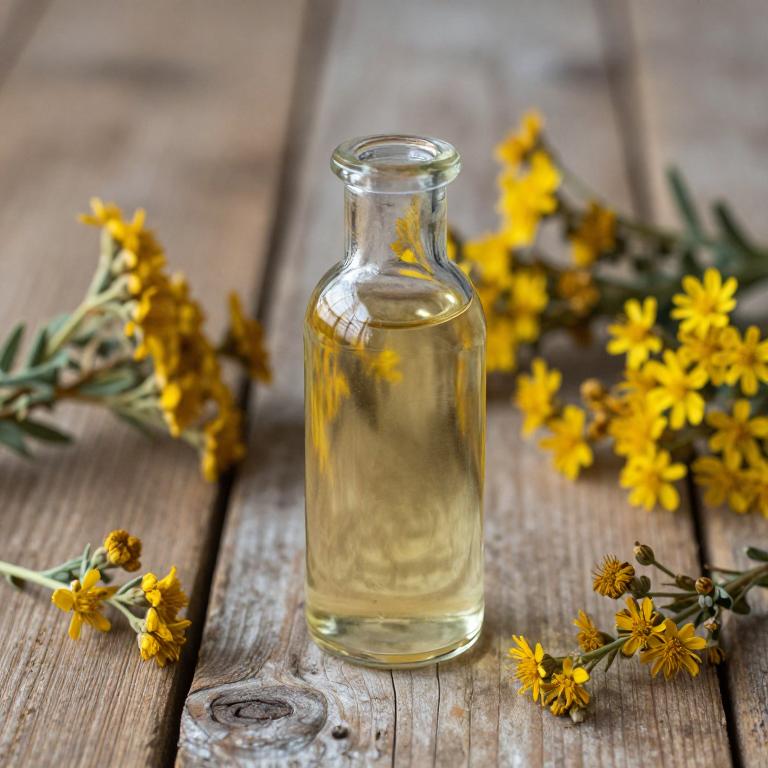
Peucedanum ostruthium herbal syrups are used to support respiratory health and alleviate symptoms of coughs and bronchitis due to their expectorant properties.
These syrups help loosen mucus in the airways, making it easier to expel, which can provide relief for individuals suffering from congestion. The herbal formulation is also believed to have anti-inflammatory effects, which may reduce irritation in the respiratory tract. Additionally, peucedanum ostruthium is traditionally used to soothe the throat and reduce the frequency of coughing, making it a valuable remedy for those with chronic respiratory conditions.
Its natural composition makes it a preferred choice for those seeking alternative or complementary treatments for respiratory ailments.
93. Dill (Anethum graveolens)
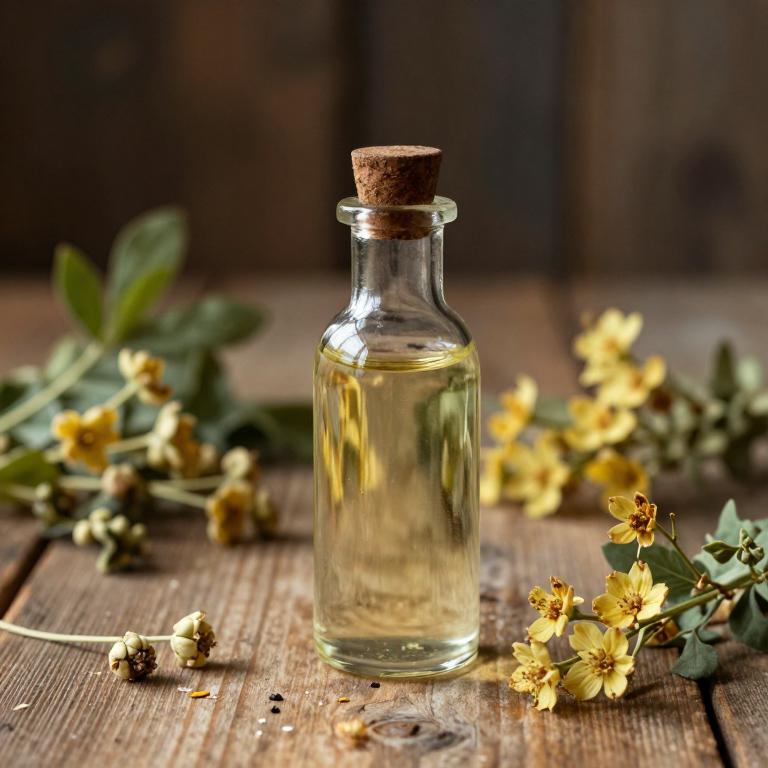
Anethum graveolens herbal syrups are used to soothe digestive discomfort and alleviate symptoms of indigestion and bloating.
These syrups contain the essential oil of fennel, which has natural carminative properties that help relax the gastrointestinal tract. They are also known to reduce nausea and support the relief of colic in infants, making them a popular remedy in traditional medicine. The active compounds in fennel, such as anethol, contribute to its effectiveness in promoting digestion and reducing inflammation in the stomach lining.
Due to their gentle yet effective nature, anethum graveolens herbal syrups are often recommended for individuals seeking natural alternatives to conventional digestive aids.
94. Indian barberry (Berberis aristata)
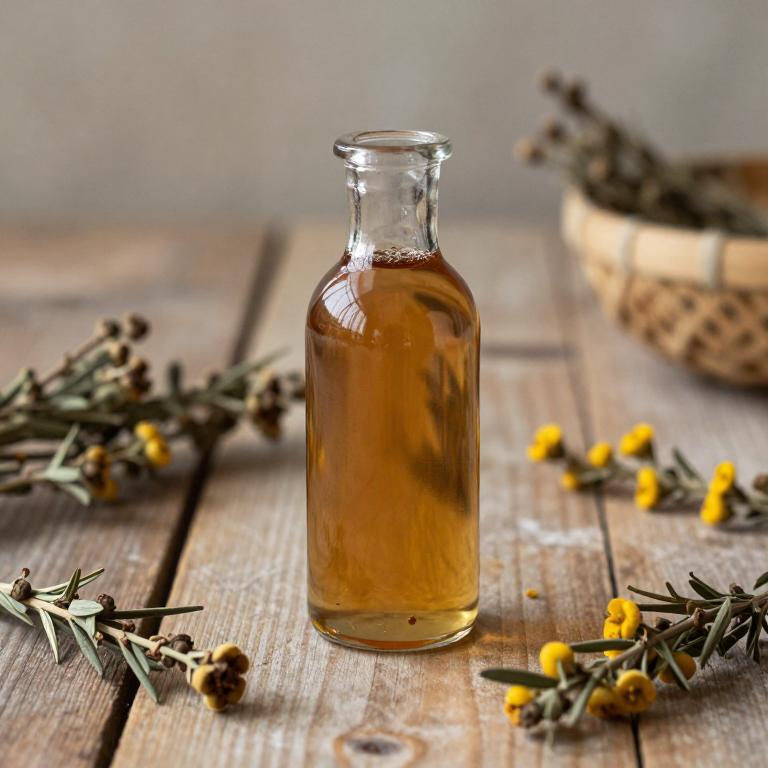
Berberis aristata herbal syrups are used to support digestive health and promote the elimination of toxins from the body.
The active compound, berberine, has been shown to have antimicrobial properties that can help in treating gastrointestinal infections. These syrups are also beneficial for managing conditions like diarrhea and inflammatory bowel diseases due to their anti-inflammatory effects. Additionally, berberine may aid in regulating blood sugar levels, making these syrups a valuable natural remedy for individuals with diabetes.
Overall, the combination of antimicrobial, anti-inflammatory, and metabolic benefits makes berberis aristata herbal syrups a versatile and effective herbal supplement.
95. Red sage (Salvia miltiorrhiza)
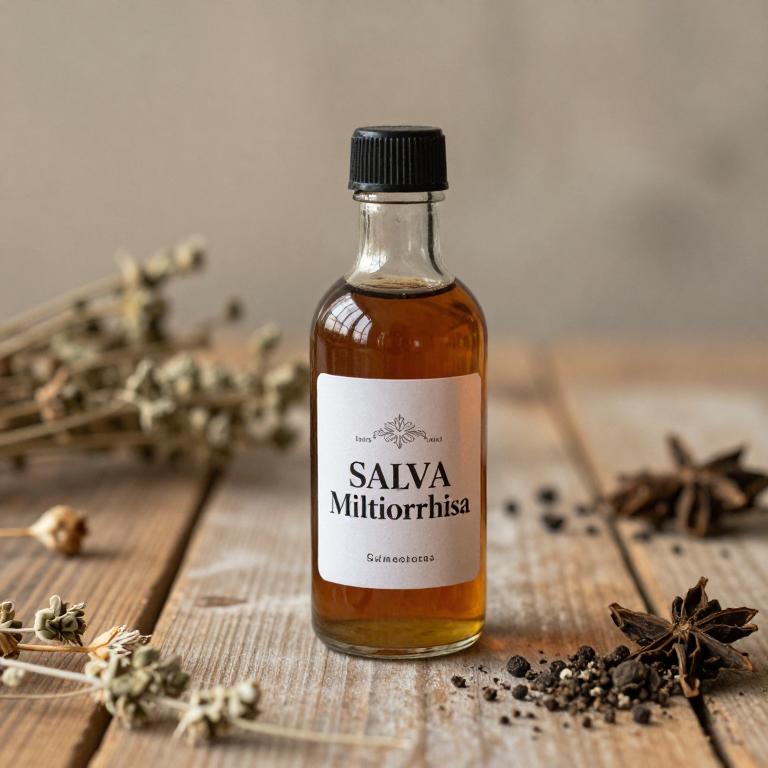
Salvia miltiorrhiza herbal syrups are used to support cardiovascular health by improving blood circulation and reducing inflammation.
They are commonly prescribed to help manage conditions such as hypertension and peripheral artery disease due to their ability to dilate blood vessels. The active compounds in the syrup, such as tanshinone and salvianolic acid, have antioxidant properties that protect cells from oxidative stress. Additionally, these syrups may aid in reducing the risk of blood clots and enhancing overall circulatory function.
Their traditional use in Chinese medicine highlights their long-standing role in promoting heart health and preventing vascular disorders.
96. Yellow milkvetch (Astragalus membranaceus)
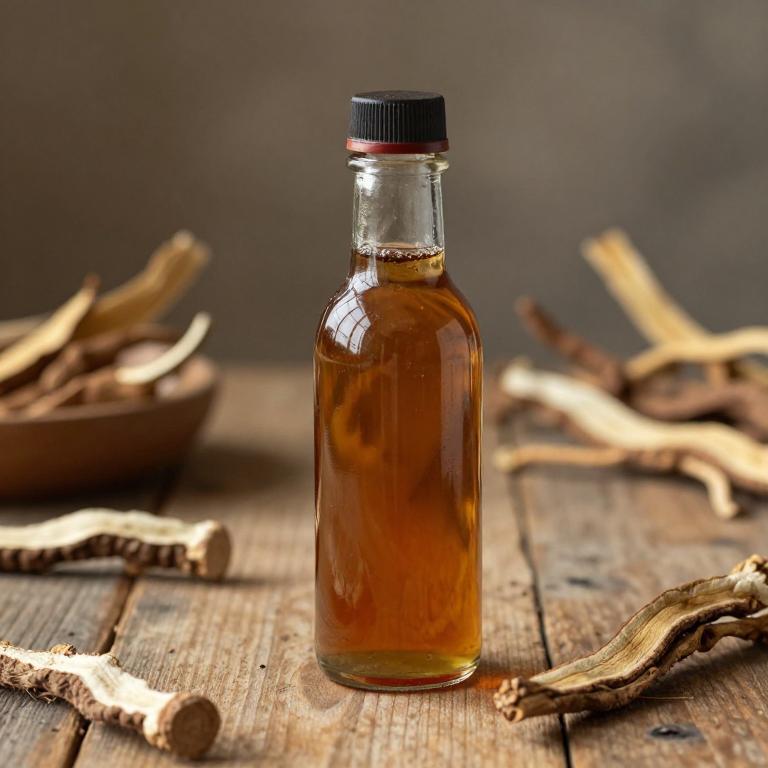
Astragalus membranaceus herbal syrups are used to support immune function and enhance vitality in individuals seeking natural wellness solutions.
These syrups are often incorporated into traditional Chinese medicine to promote the body's natural defenses against infections and illnesses. Their adaptogenic properties help the body manage stress and maintain balance, making them beneficial for those with chronic fatigue or weakened immunity. Additionally, astragalus membranaceus syrups may aid in improving respiratory health and reducing inflammation, supporting overall well-being.
Due to their mild and accessible form, these syrups are a popular choice for daily use in maintaining long-term health and resilience.
97. Devil's ivy (Cissus quadrangularis)
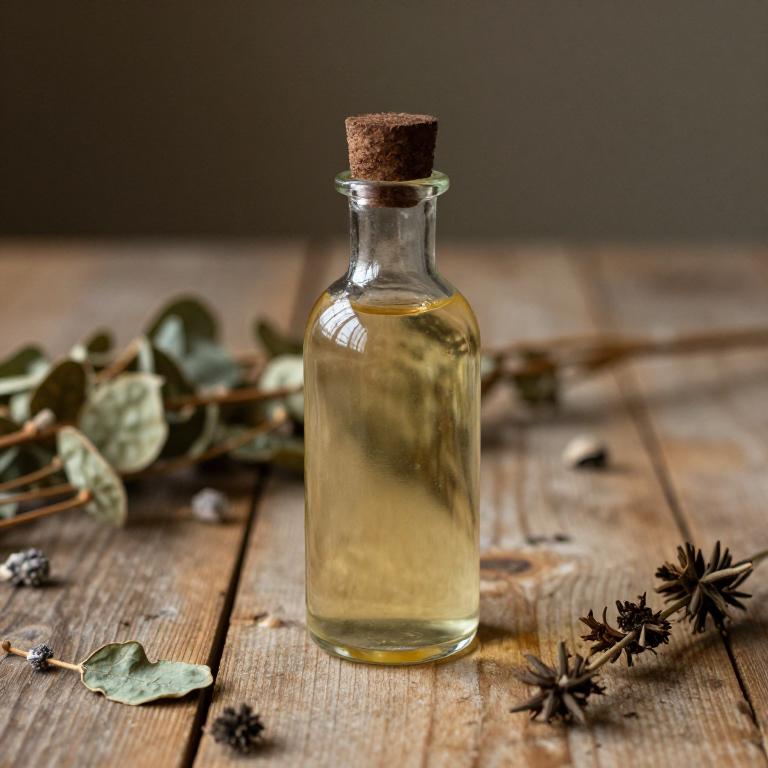
Cissus quadrangularis herbal syrups are used to support bone health and enhance recovery from injuries due to their high concentration of calcium and other minerals.
These syrups are also known to improve joint mobility and reduce inflammation, making them beneficial for individuals with arthritis or joint pain. Additionally, they are used to boost energy levels and improve overall vitality, thanks to their rich content of antioxidants and nutrients. The syrup's ability to promote tissue repair makes it a popular choice for athletes and people recovering from physical trauma.
Overall, cissus quadrangularis herbal syrups are valued for their holistic health benefits and natural approach to wellness.
98. Black cohosh (Actaea racemosa)
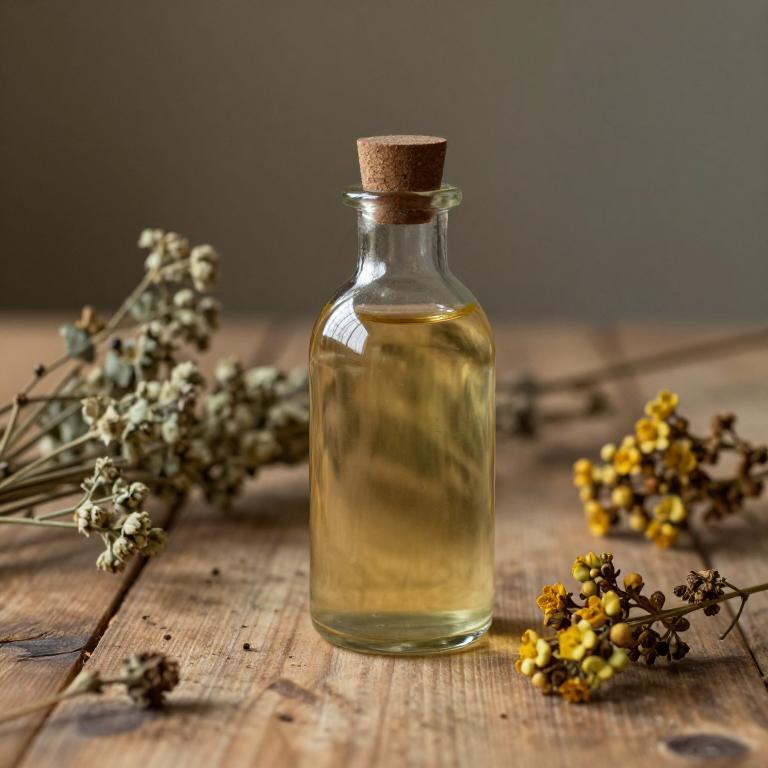
Actaea racemosa herbal syrups are used to support digestive health and alleviate gastrointestinal discomfort.
They contain compounds that may help soothe inflammation in the digestive tract, making them beneficial for conditions like irritable bowel syndrome or indigestion. These syrups are also valued for their potential calming effects on the nervous system, which can aid in reducing stress-related digestive issues. The traditional use of Actaea racemosa, also known as black cohosh, has led to its incorporation in herbal formulations for its purported anti-spasmodic properties.
Due to these potential benefits, actaea racemosa herbal syrups are often sought after by those looking for natural remedies for digestive and nervous system support.
99. Black henbane (Hyoscyamus niger)
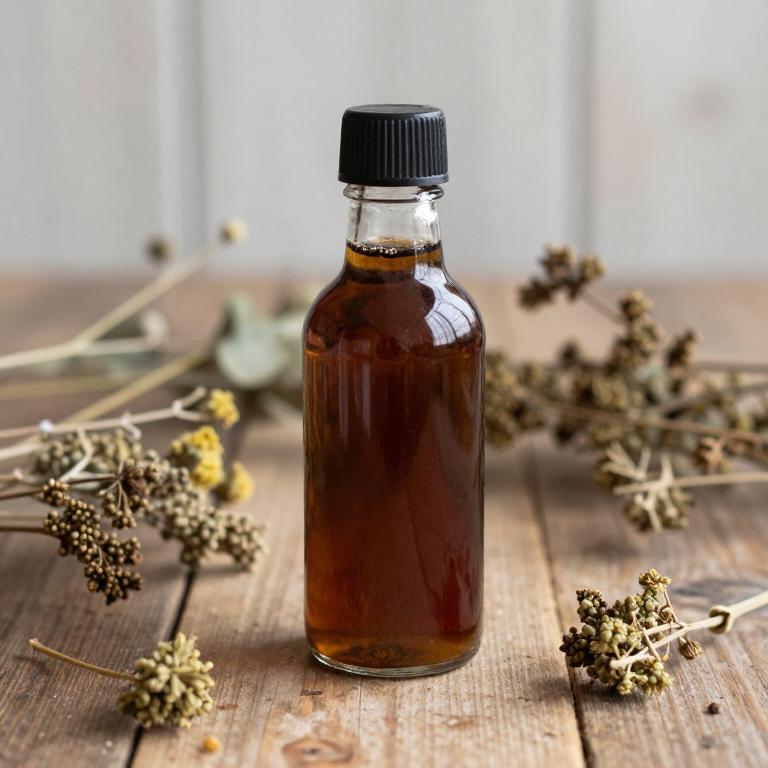
Hyoscyamus niger herbal syrups are used to alleviate symptoms of gastrointestinal disorders such as spastic colon, irritable bowel syndrome, and gastrointestinal cramps due to their antispasmodic properties.
These syrups contain alkaloids that help relax smooth muscle tissues in the digestive tract, reducing pain and discomfort associated with cramping. They are also beneficial in managing symptoms of bladder spasms and urinary tract disorders by reducing involuntary contractions. The sedative effects of the syrup can provide relief from anxiety and restlessness, making it useful in treating certain nervous system conditions.
Overall, hyoscyamus niger herbal syrups are valued for their ability to address a range of conditions involving muscle spasms and gastrointestinal distress.
100. Indian gooseberry (Emblica officinalis)
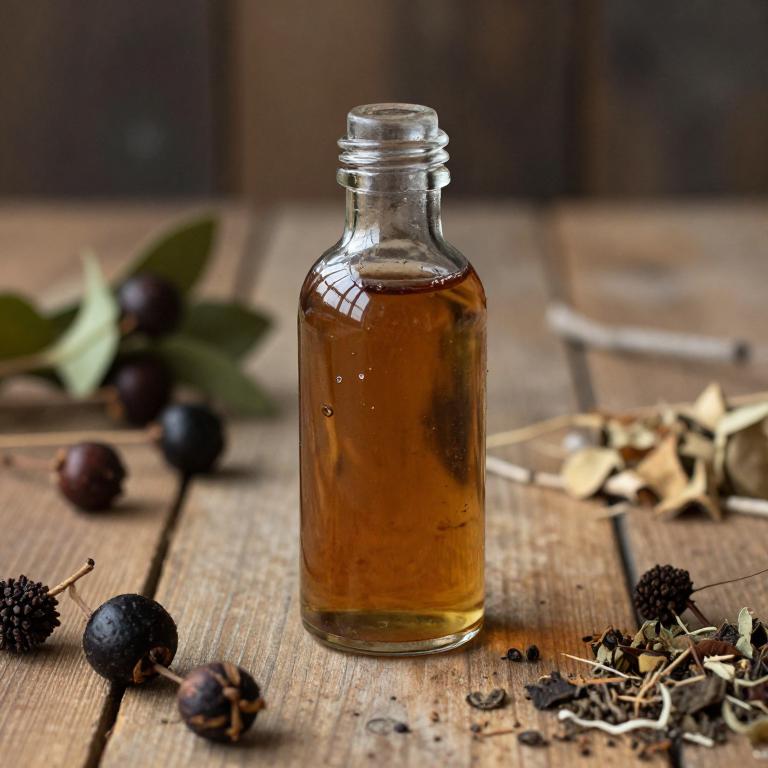
Emblica officinalis herbal syrups are used to support digestive health and enhance nutrient absorption due to their high content of vitamin C and antioxidants.
These syrups are also known to boost the immune system, making them beneficial during cold and flu seasons. Additionally, they are commonly used to promote skin health by reducing oxidative stress and improving skin elasticity. The anti-inflammatory properties of emblica officinalis make it useful in managing conditions like gastritis and ulcers.
Overall, these syrups are valued for their holistic benefits, supporting both internal and external well-being.